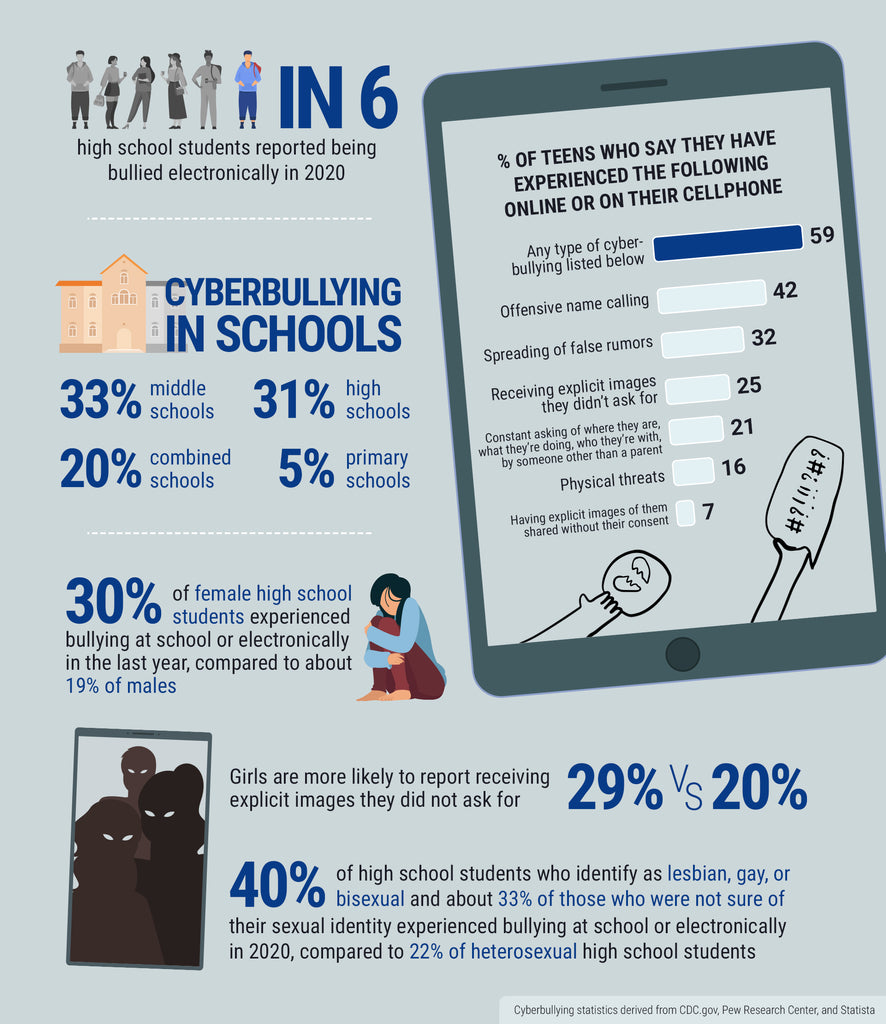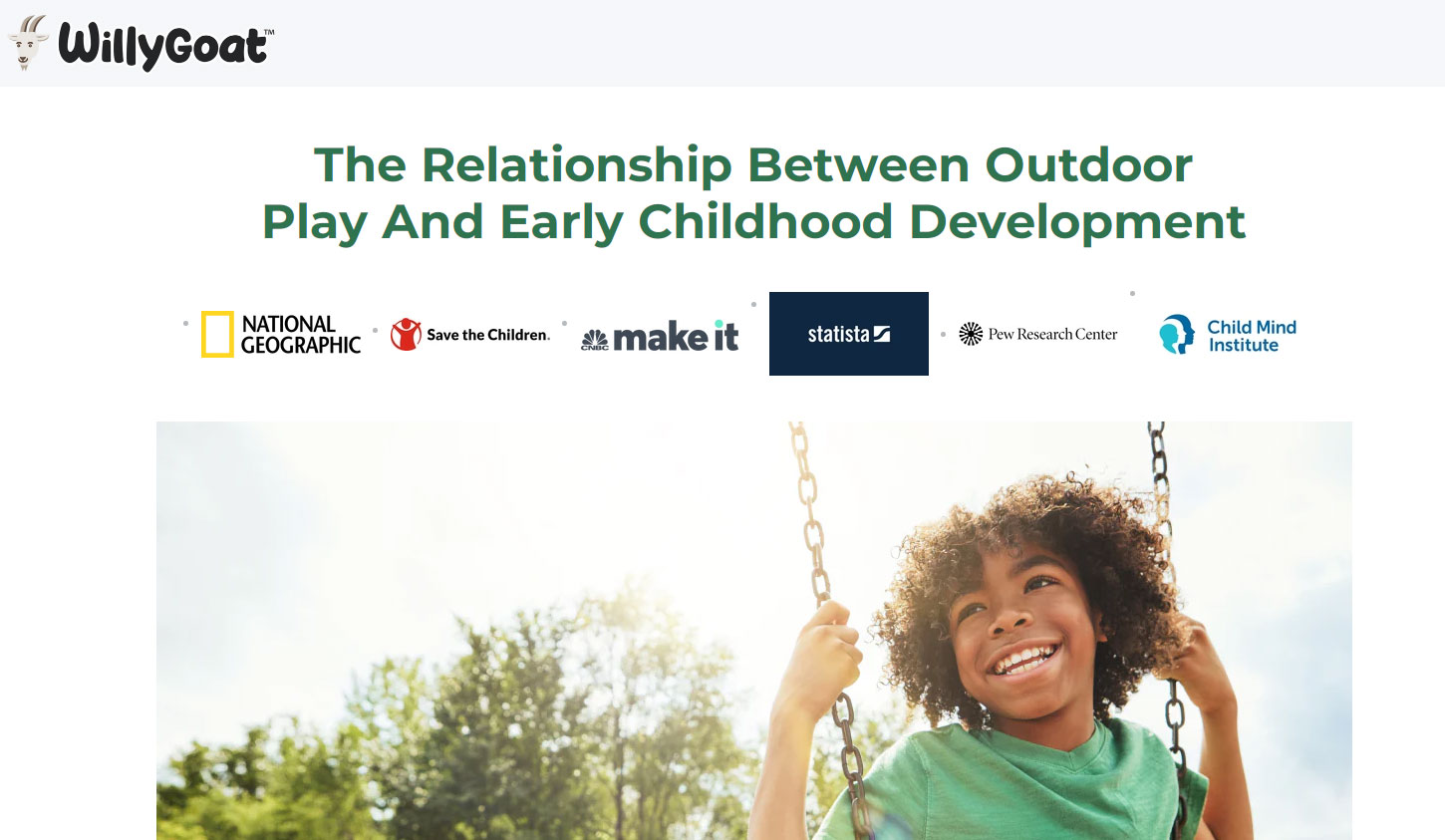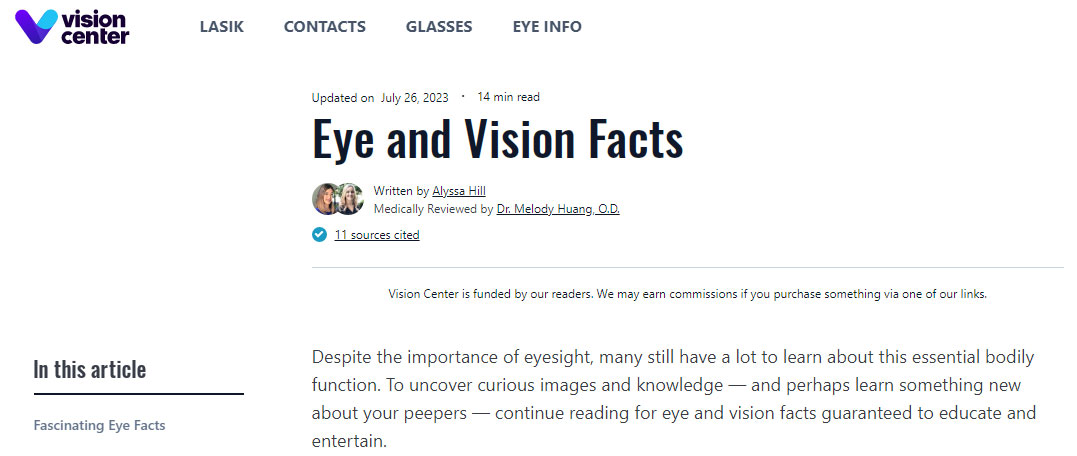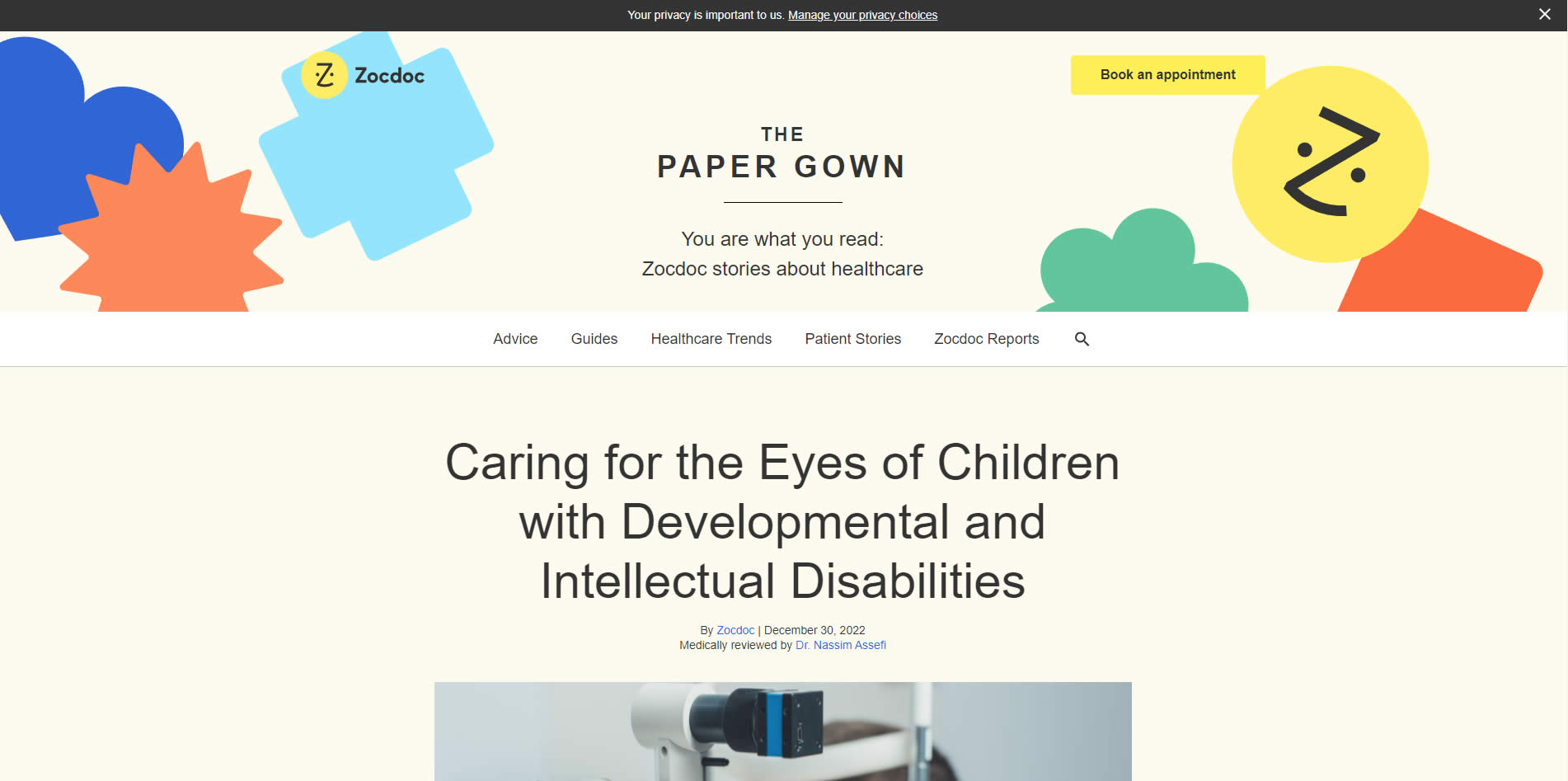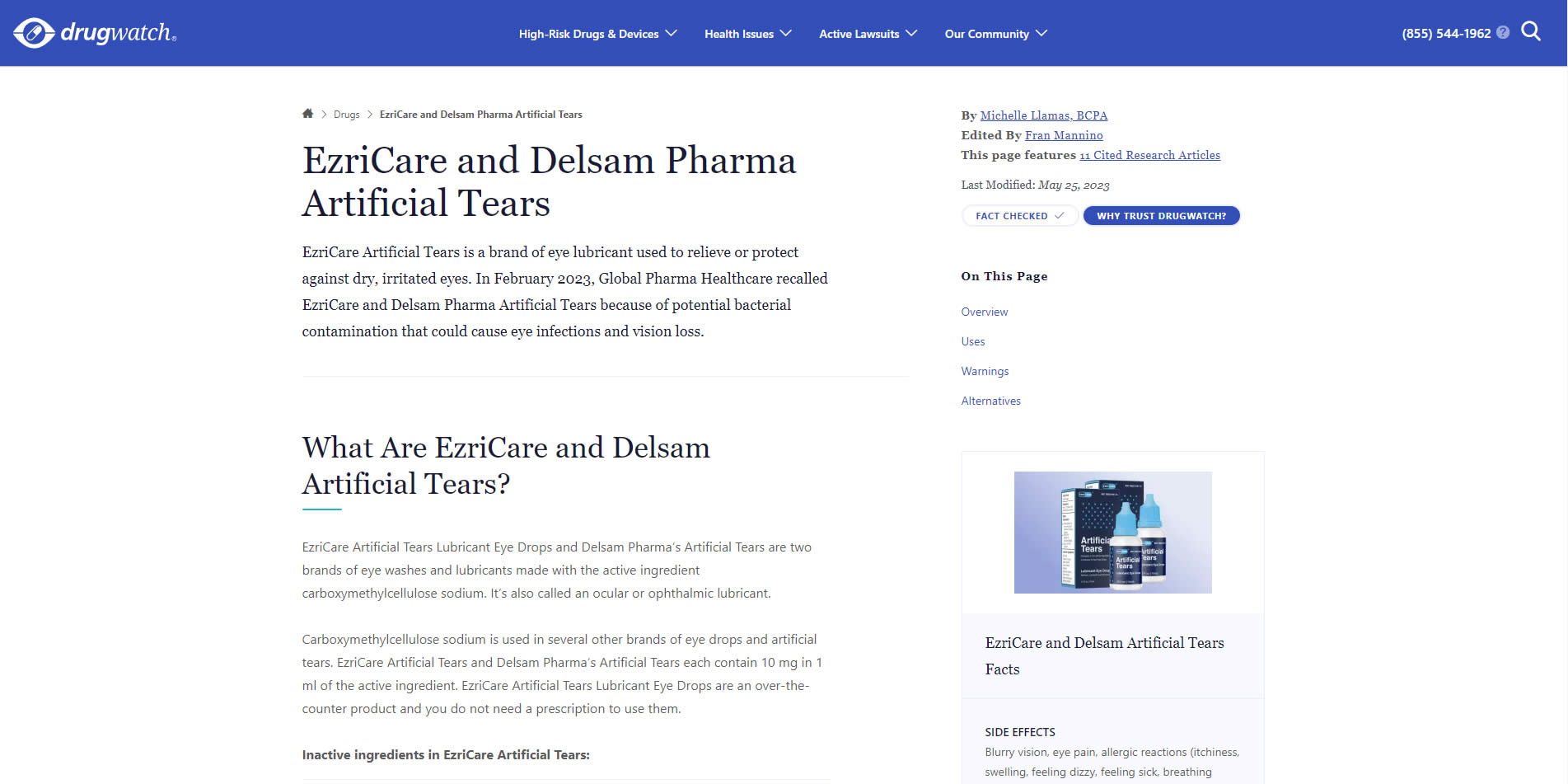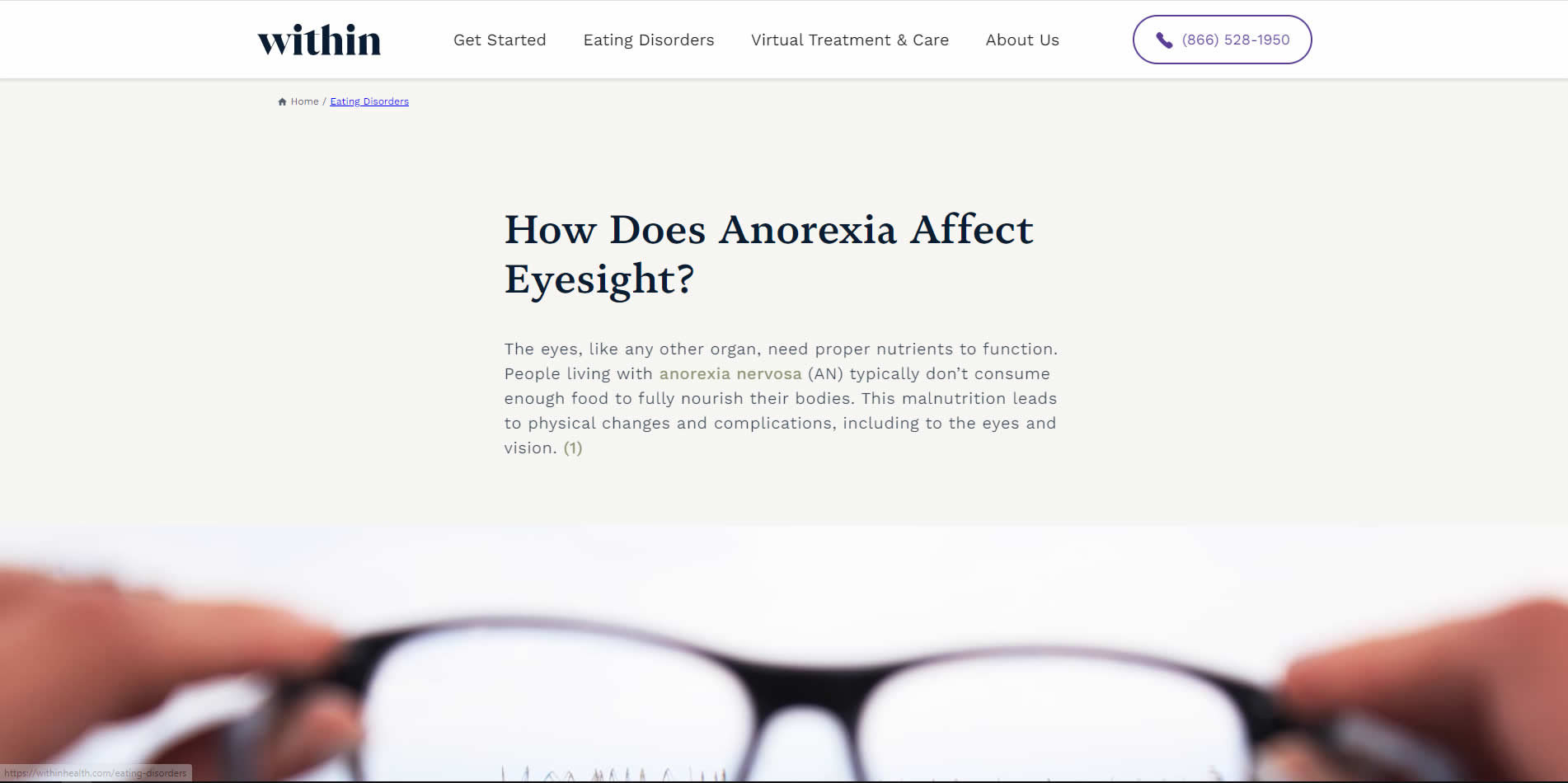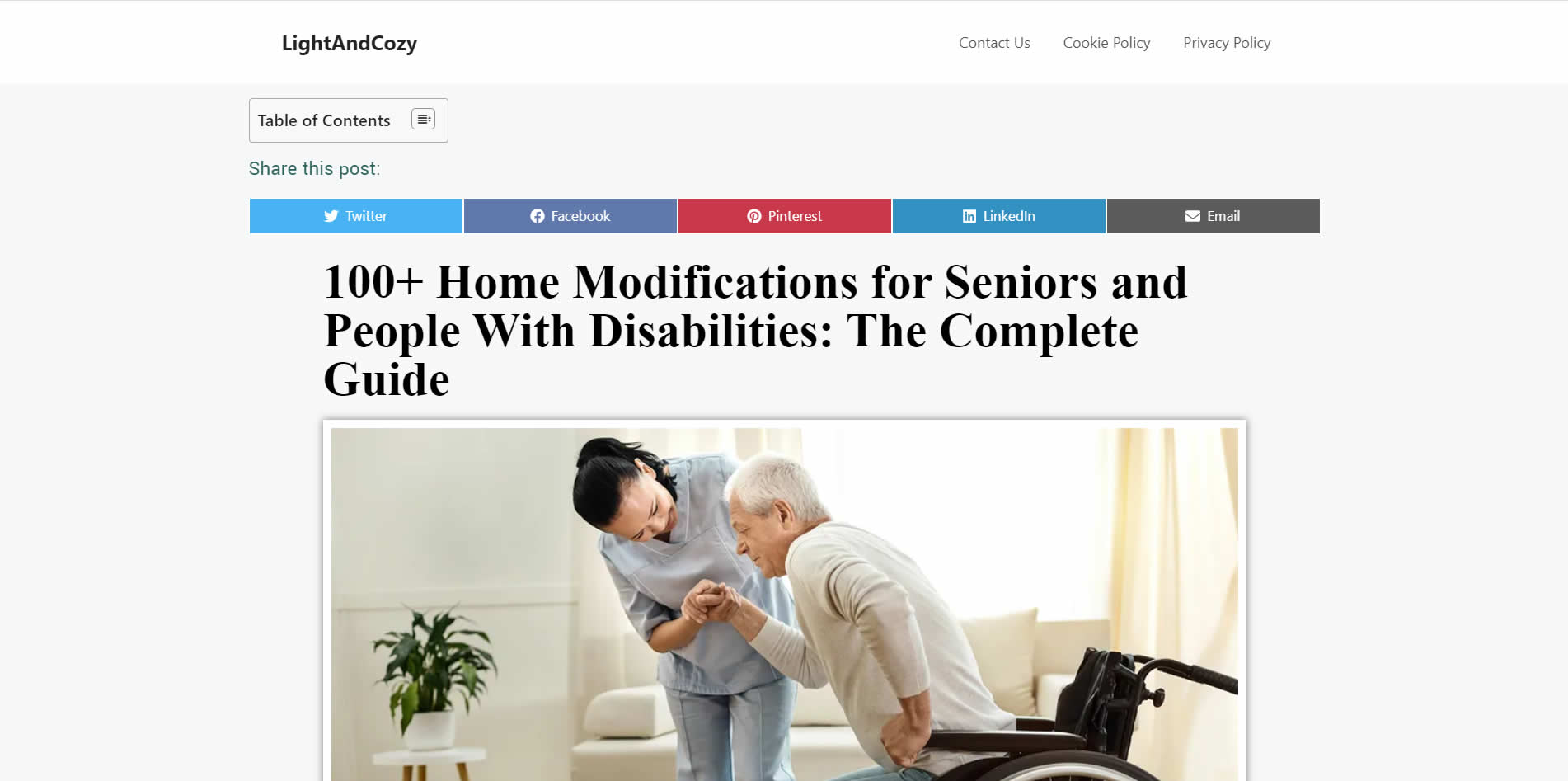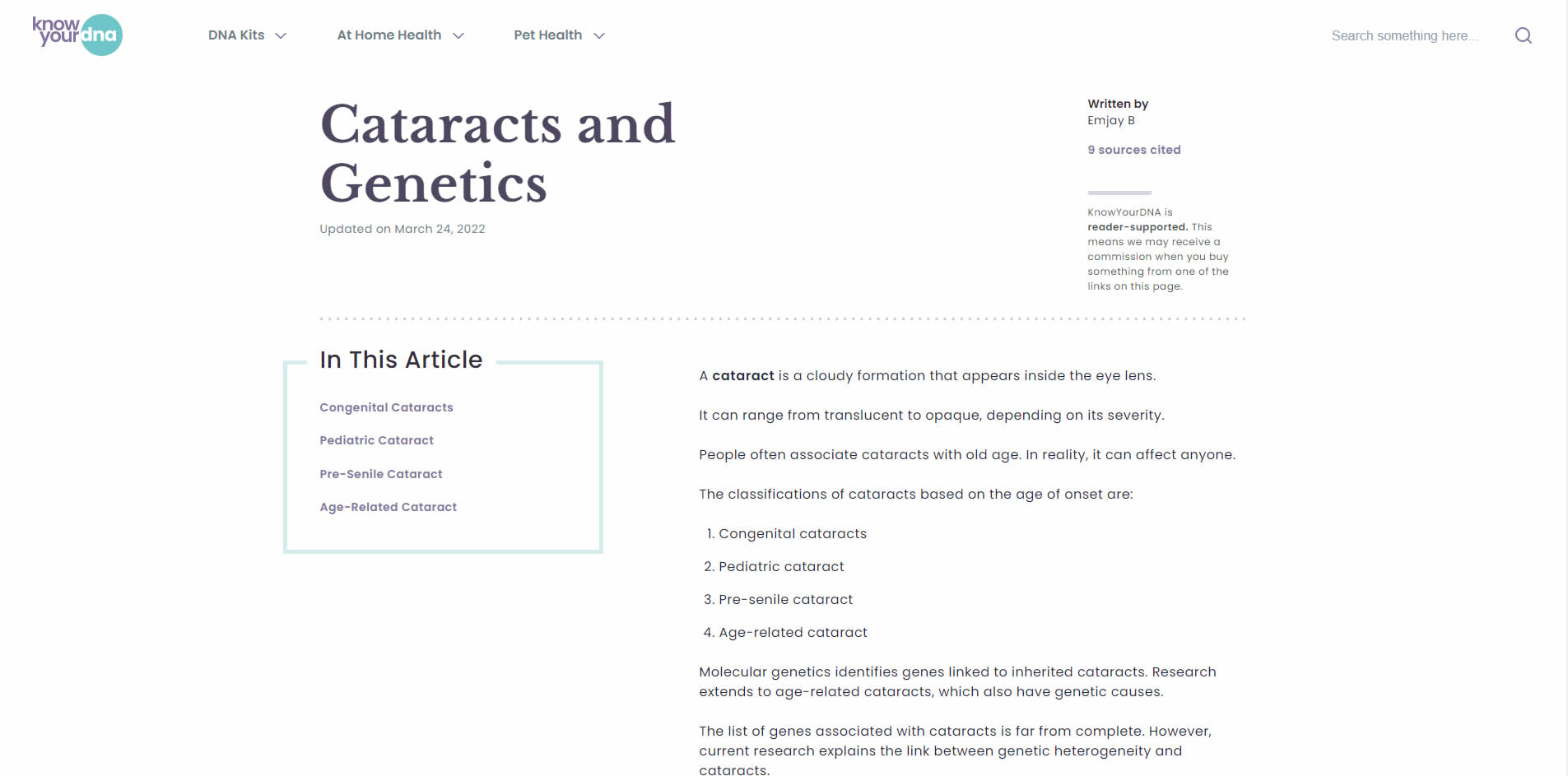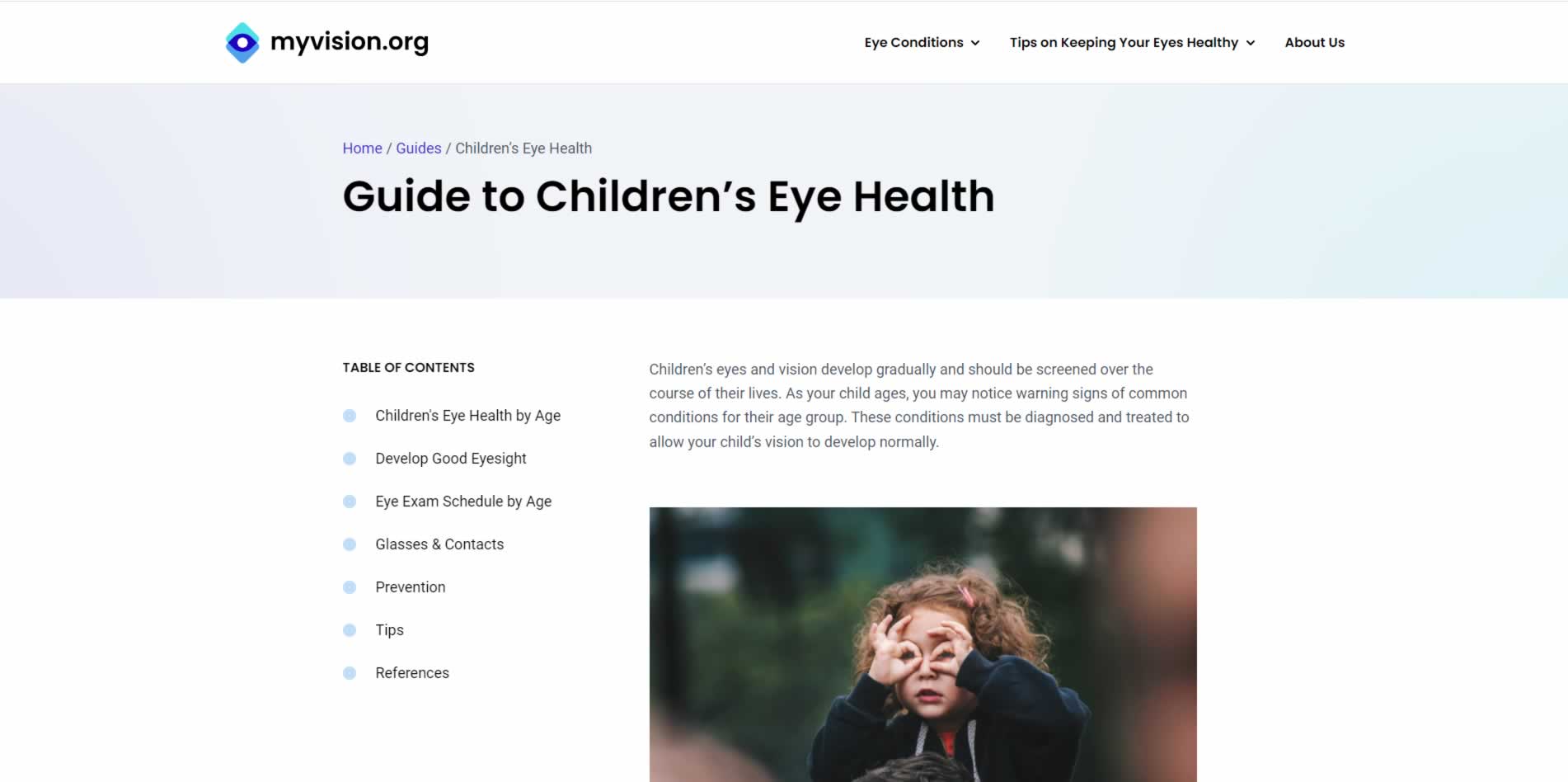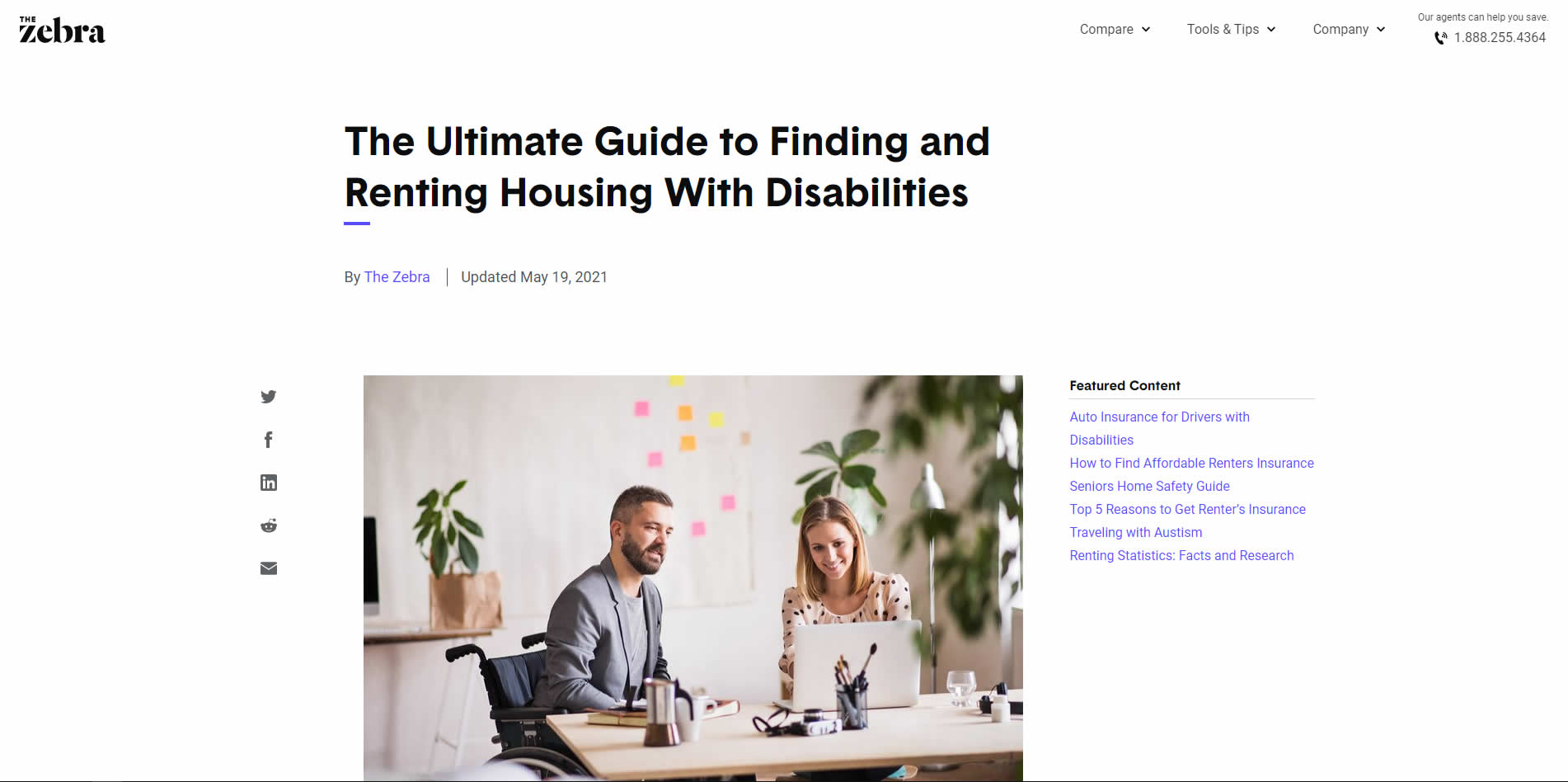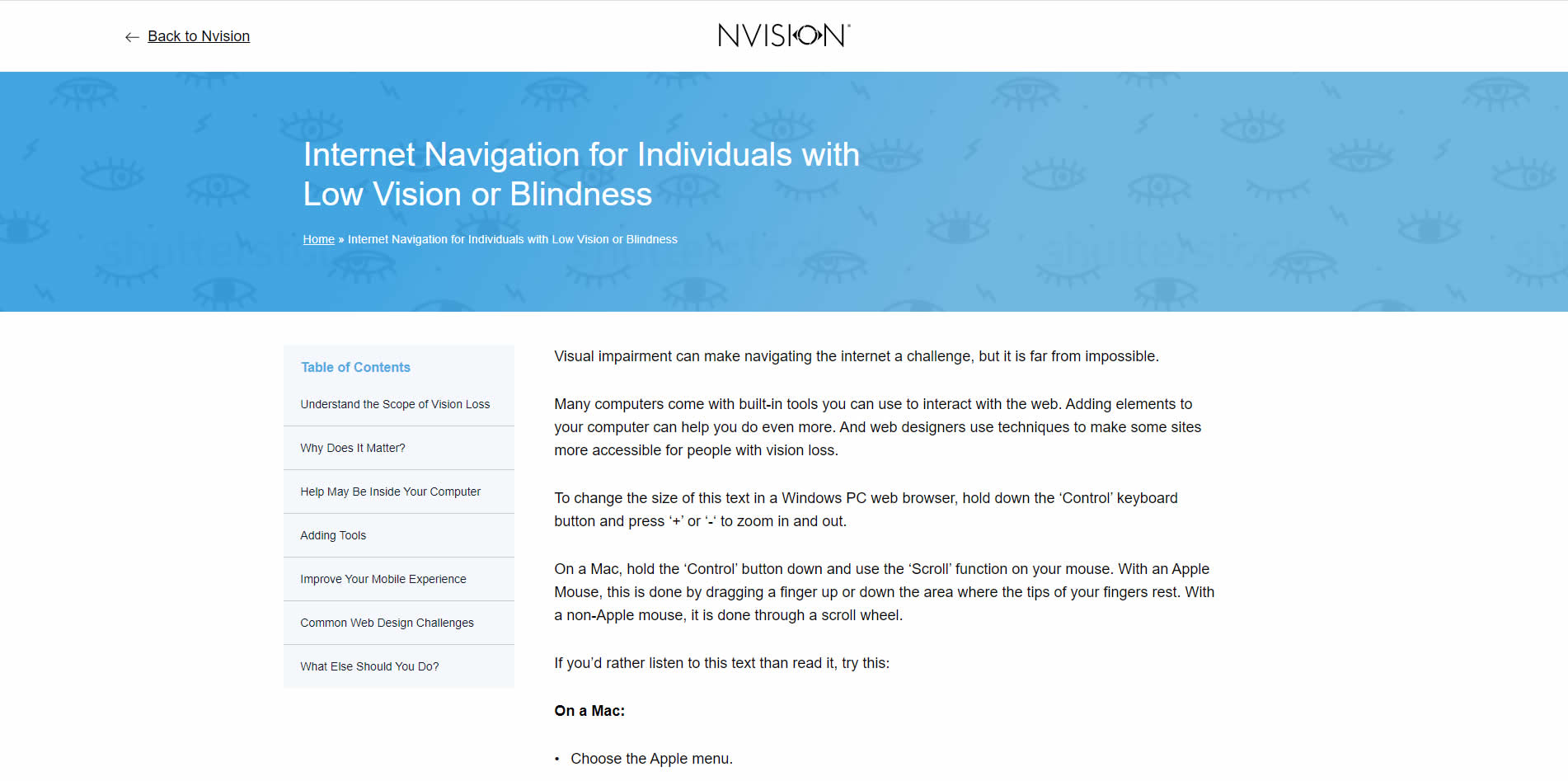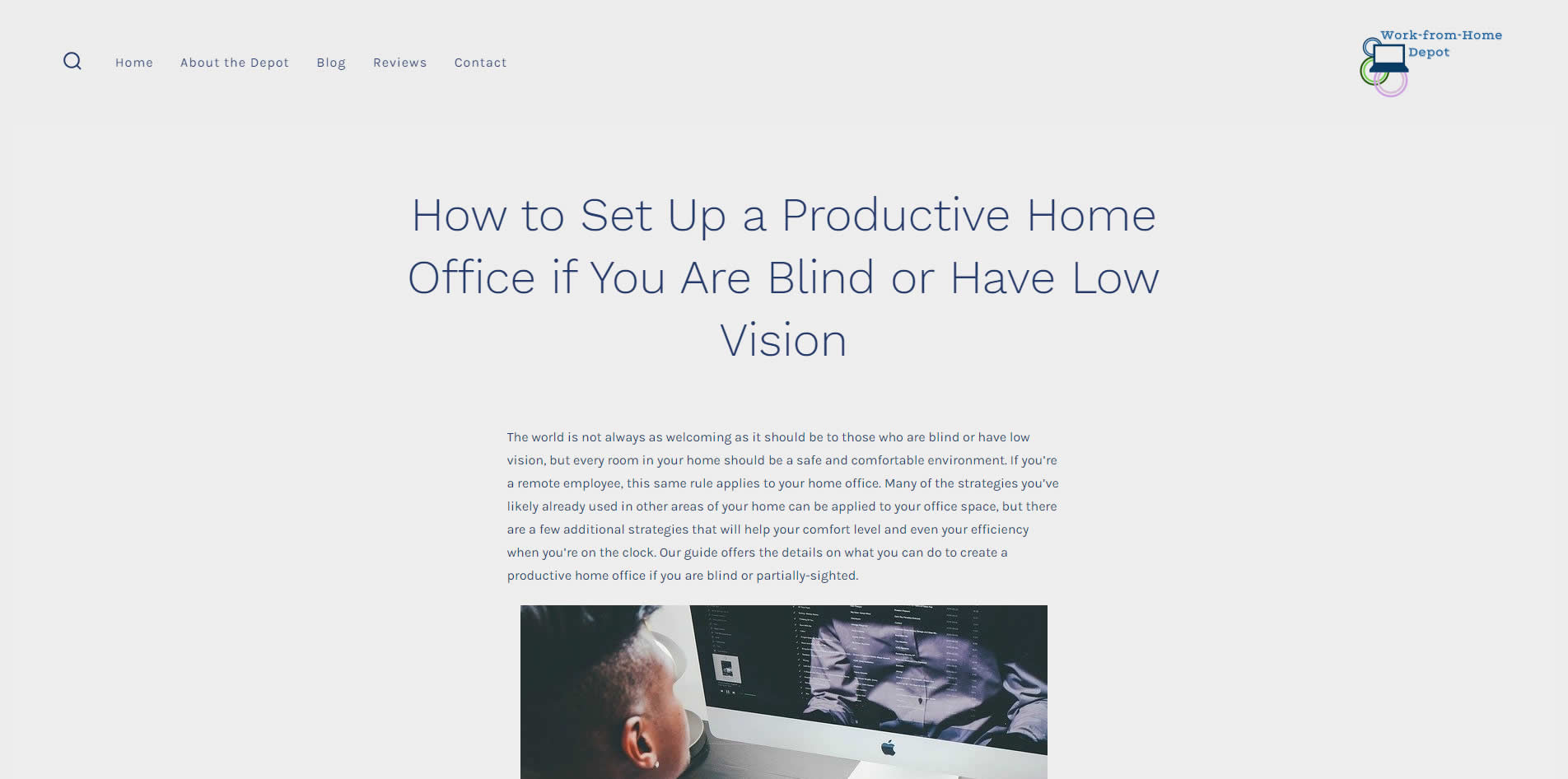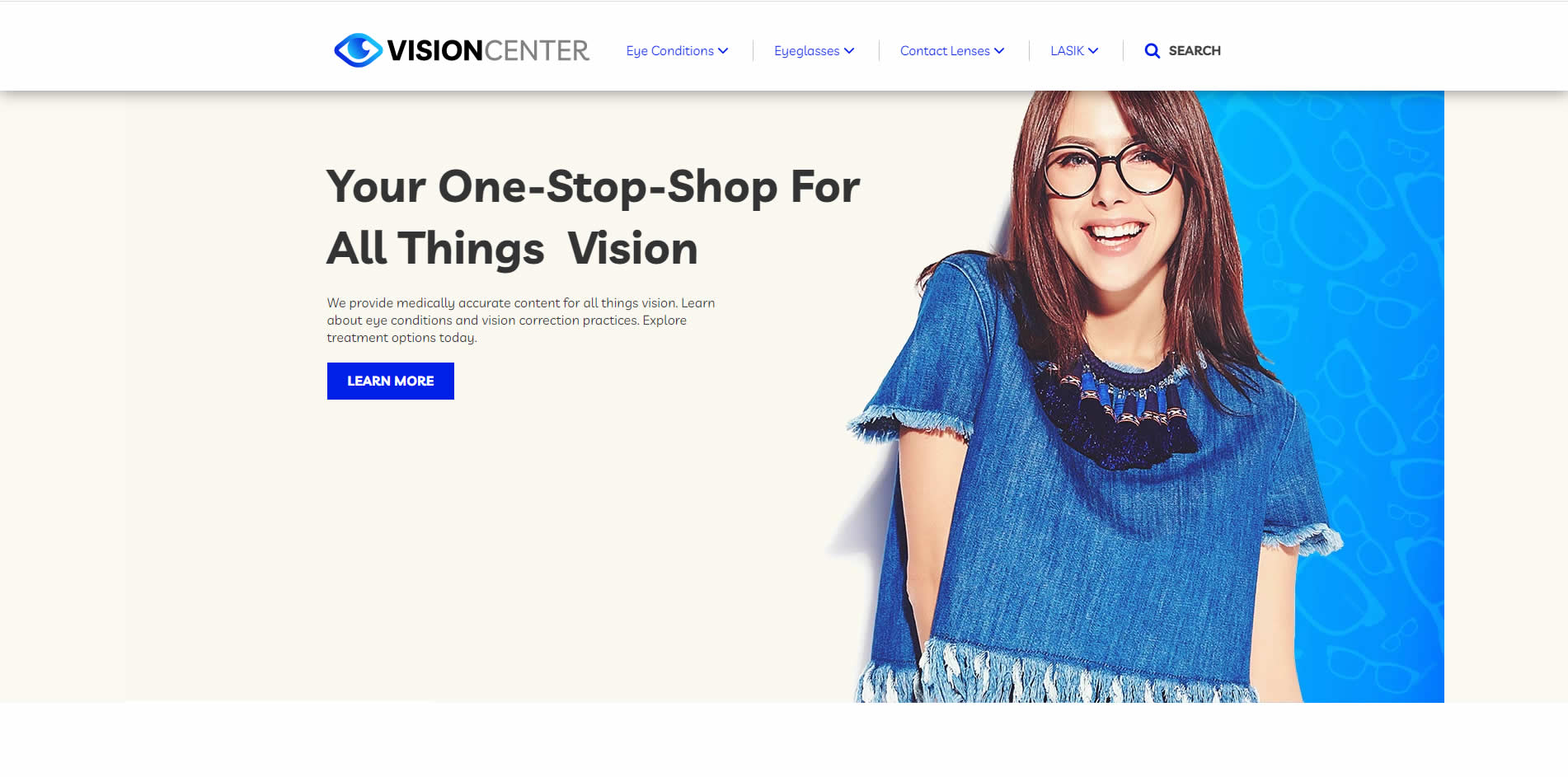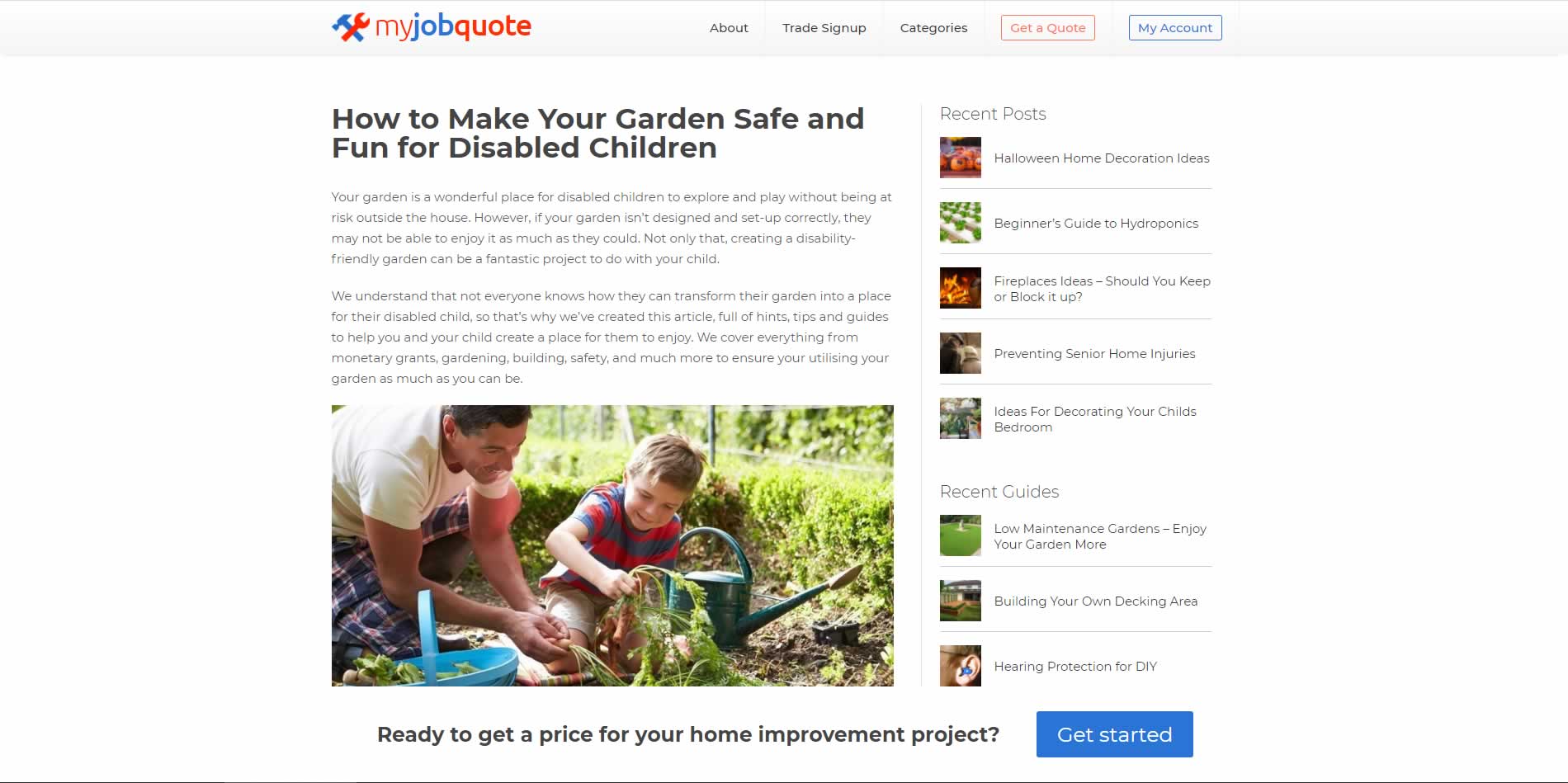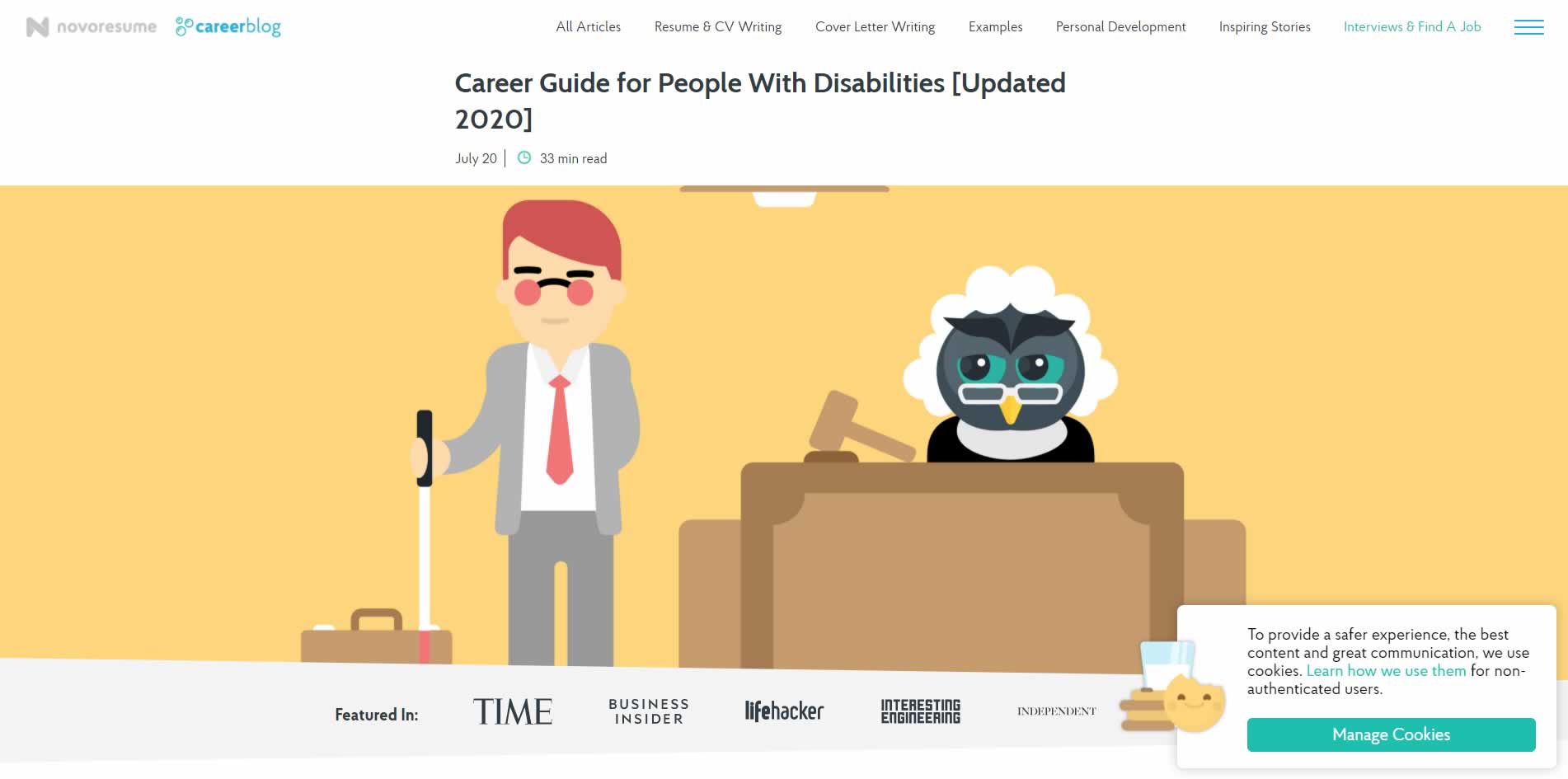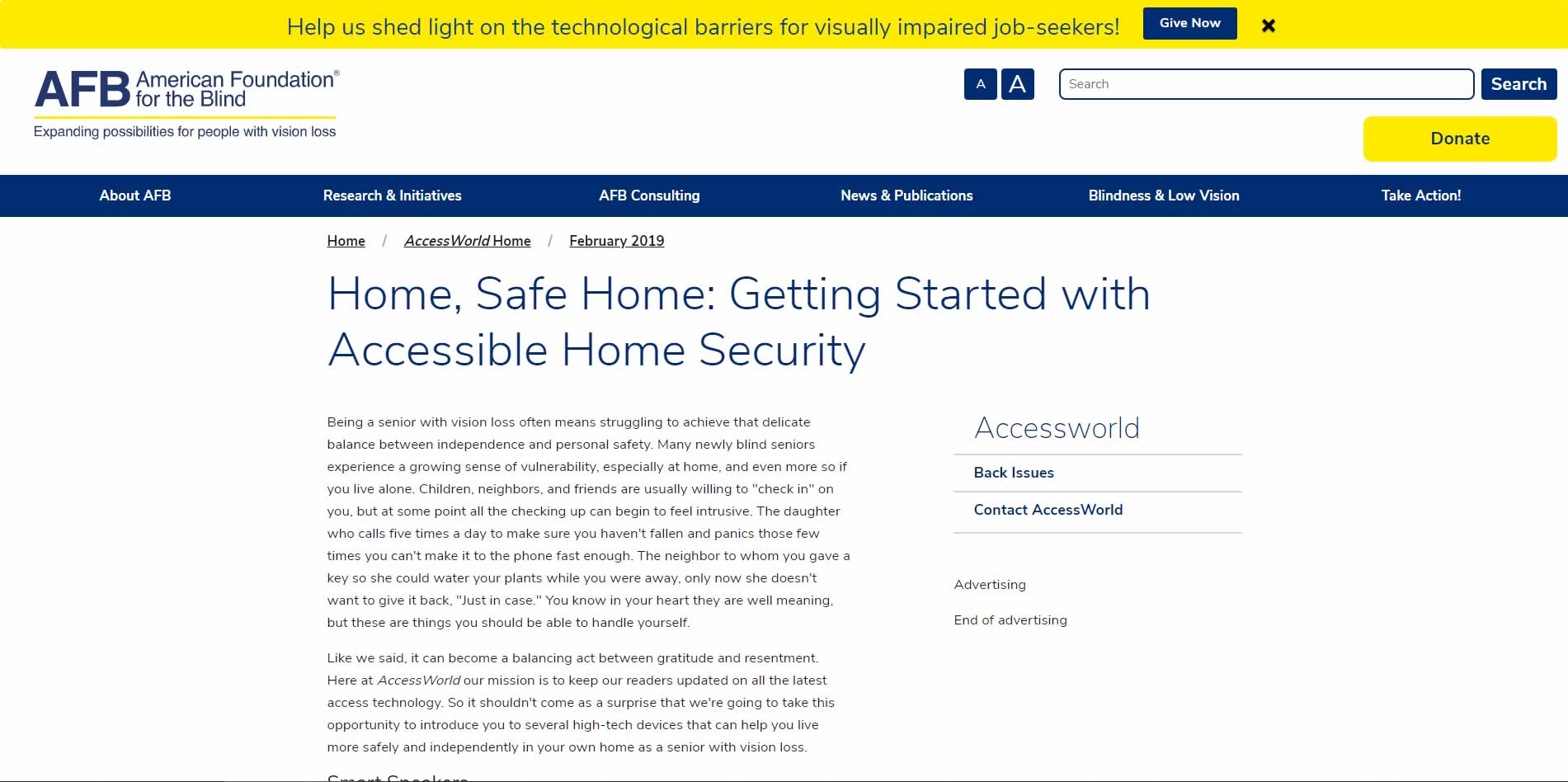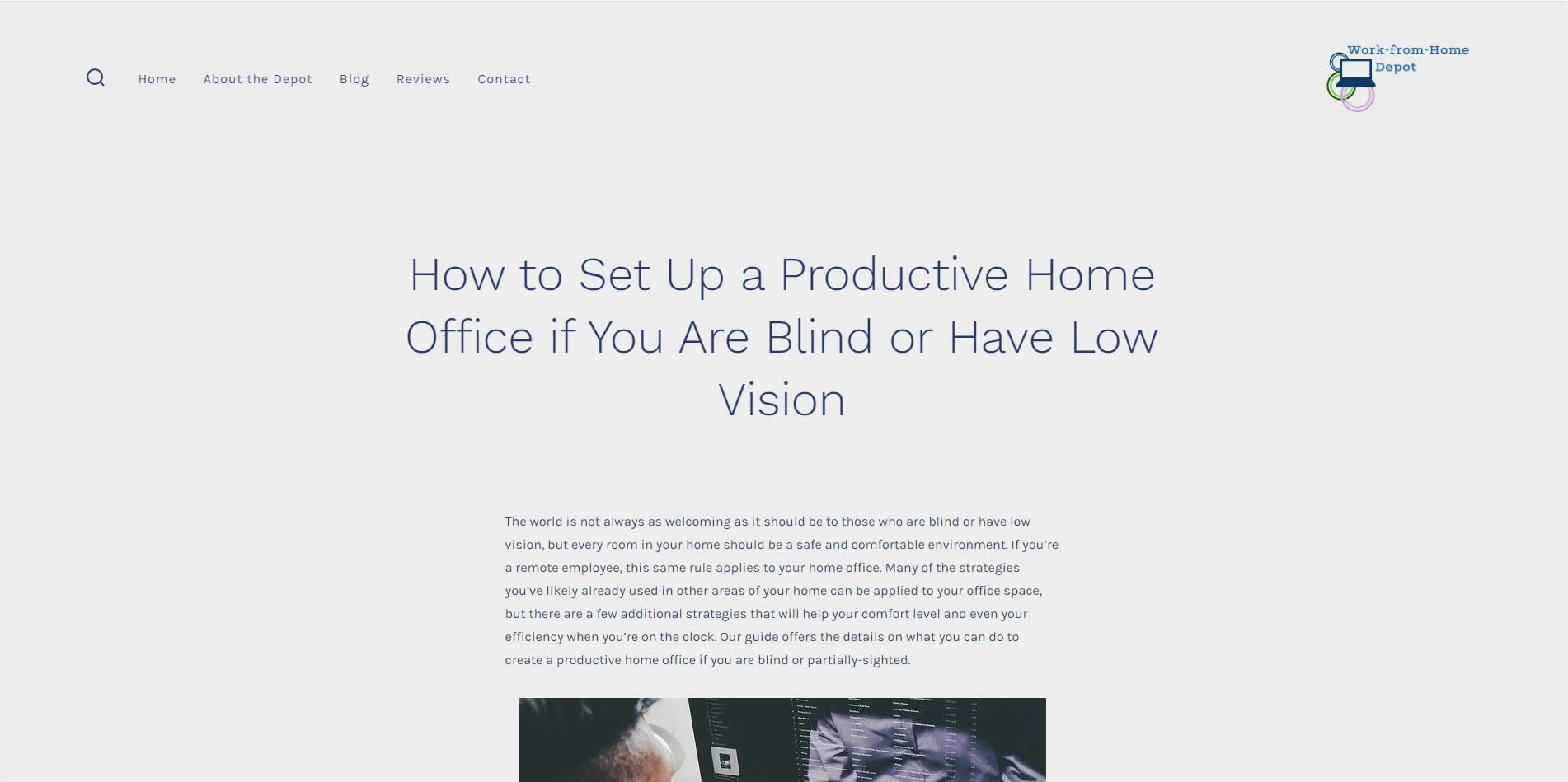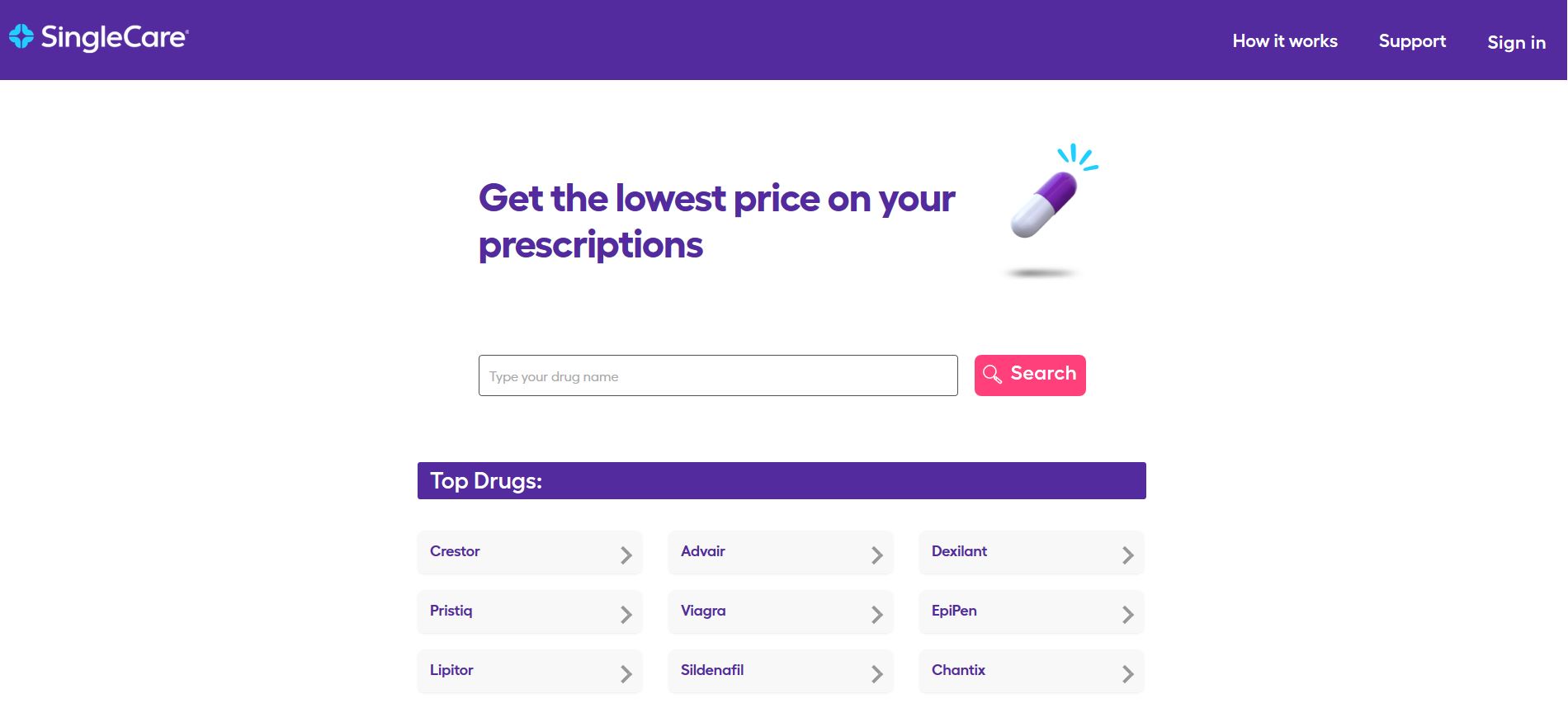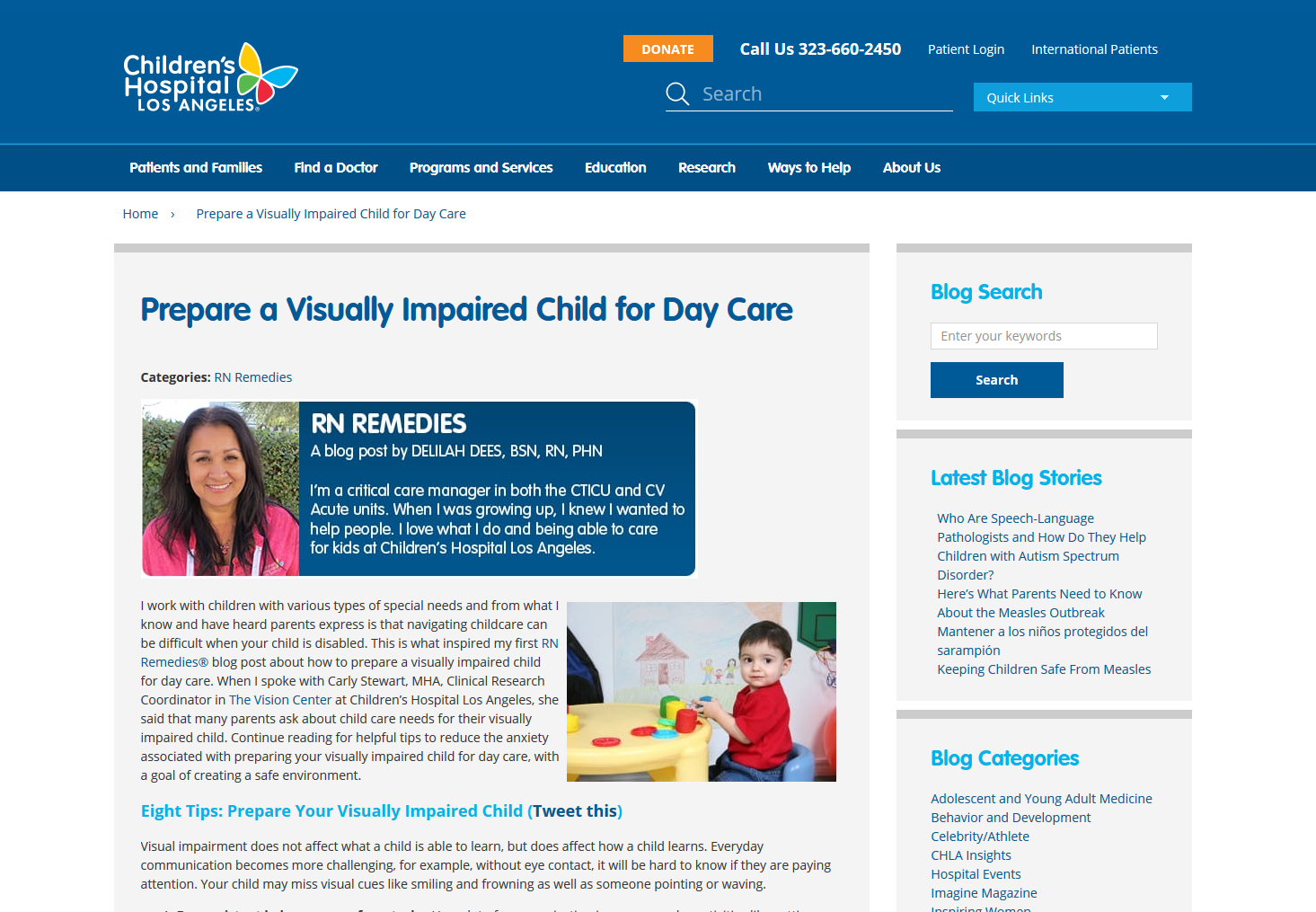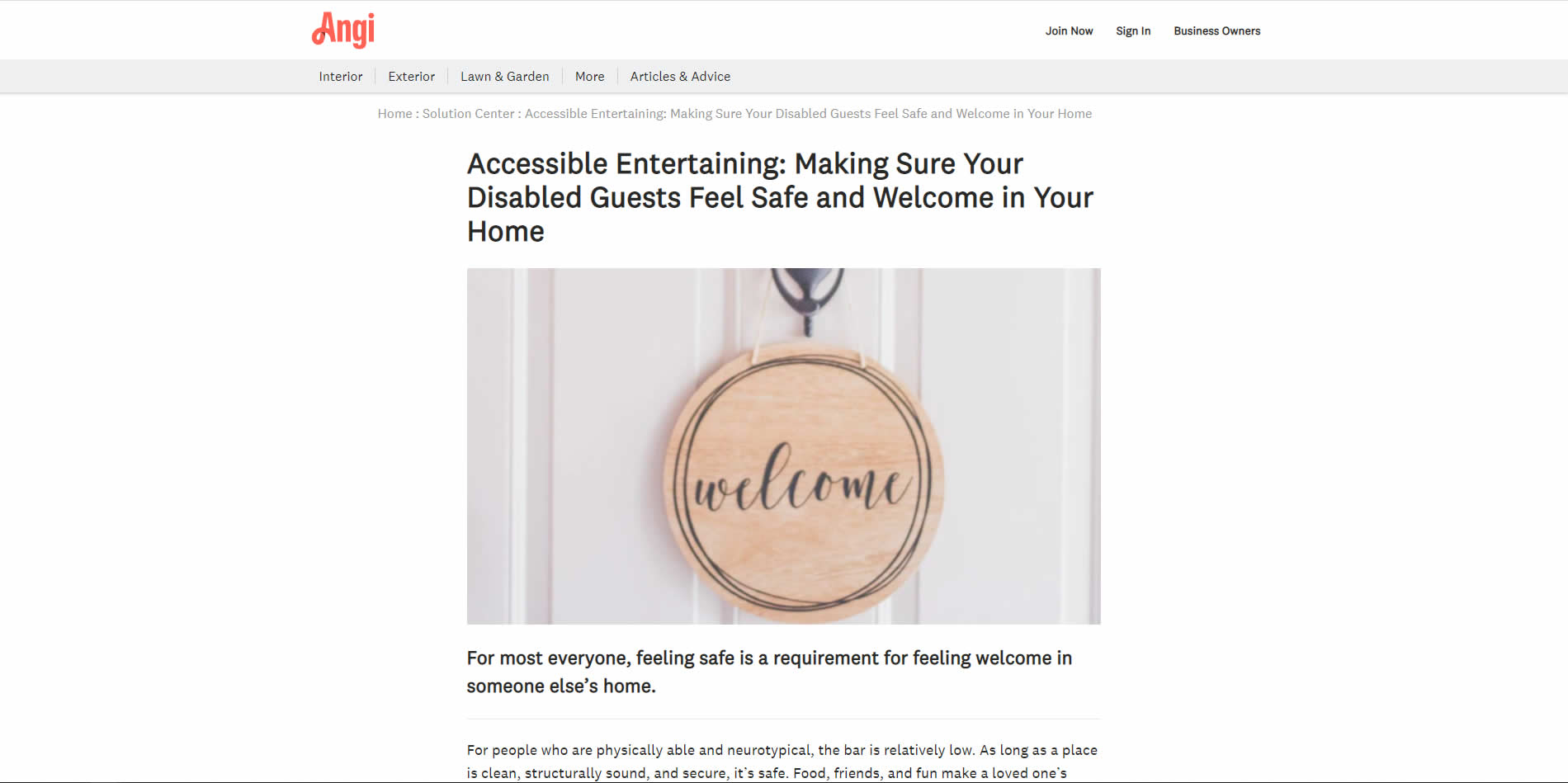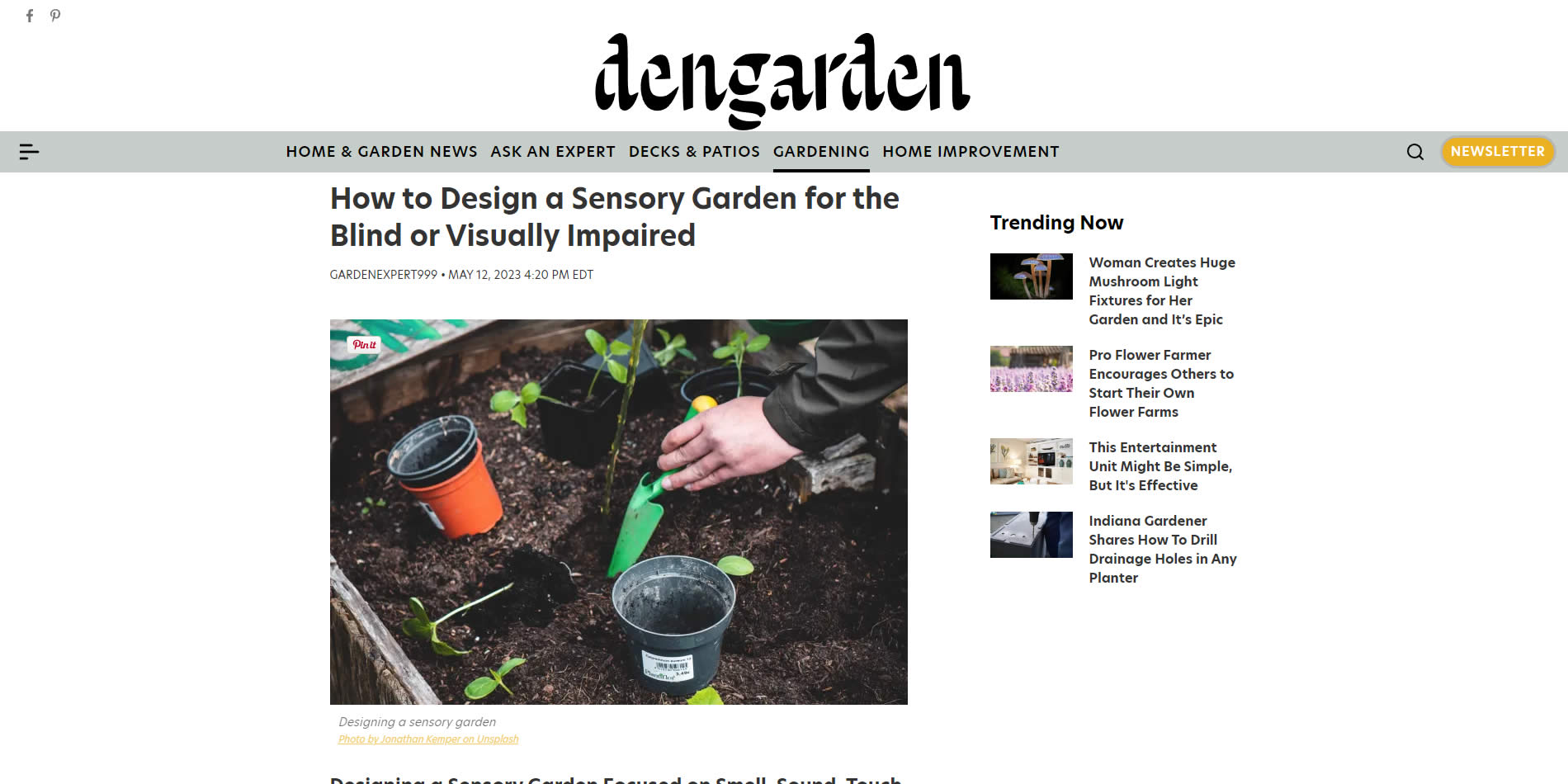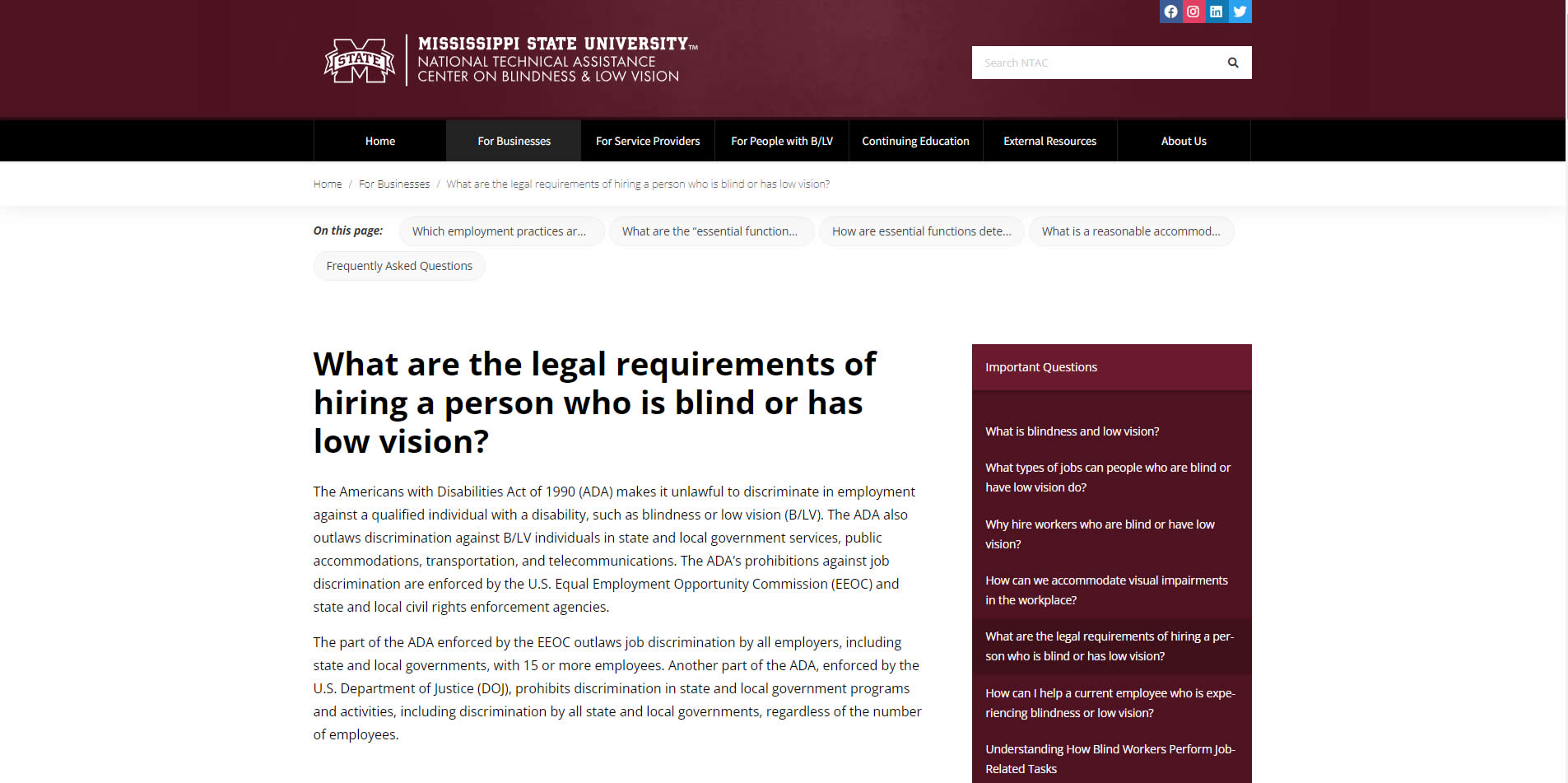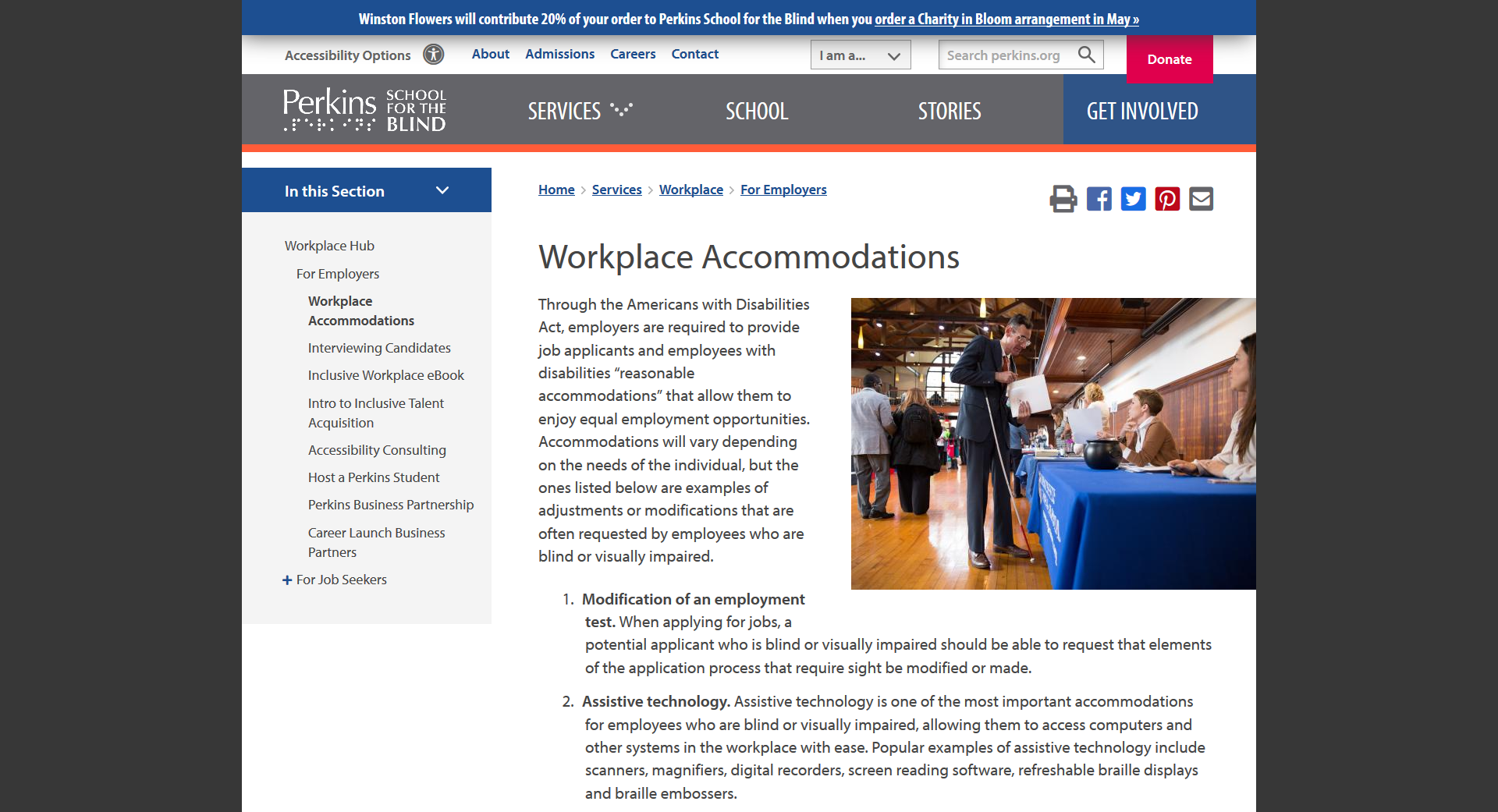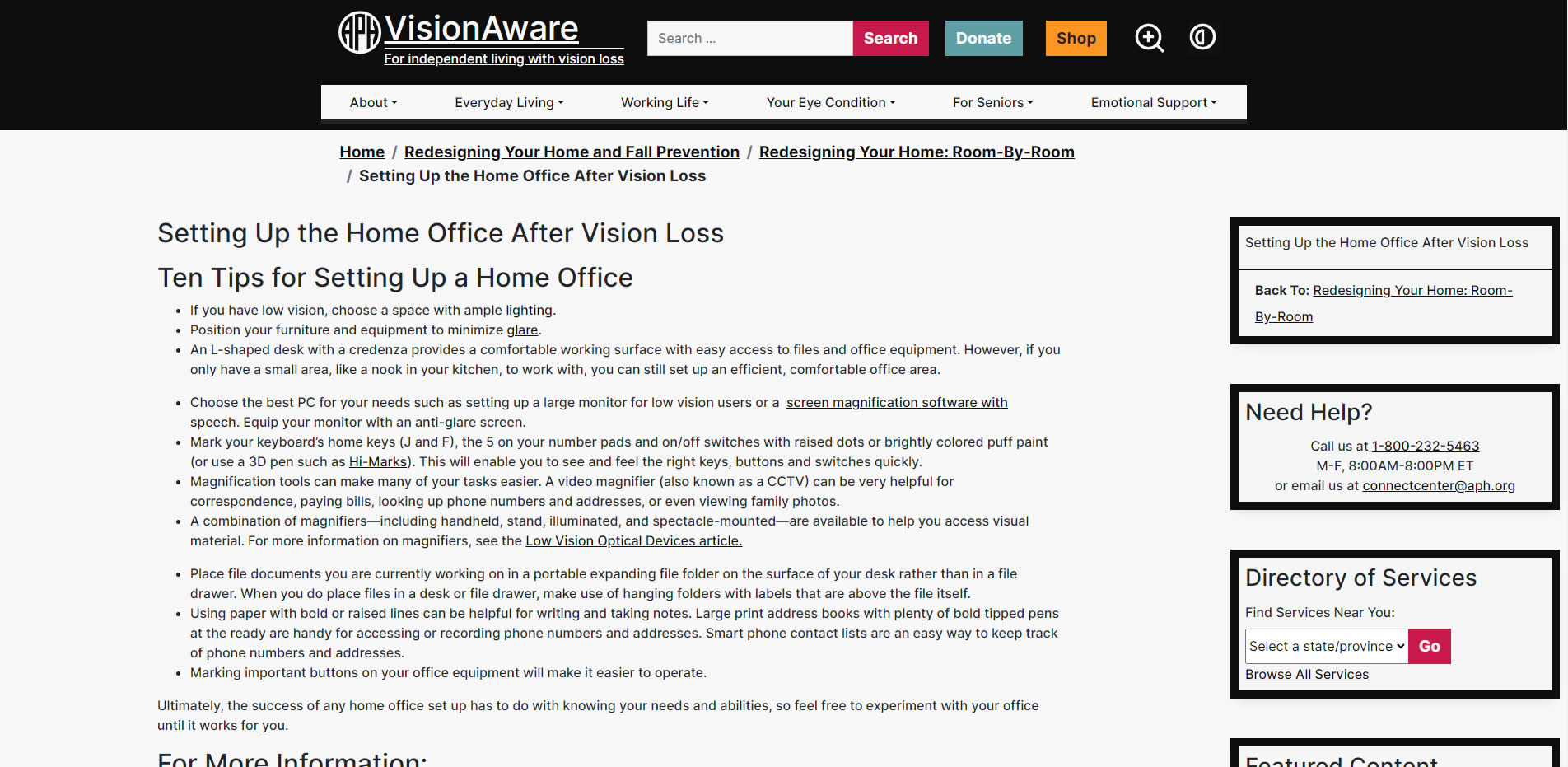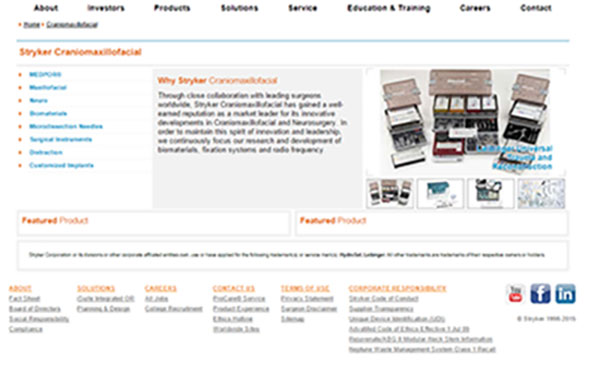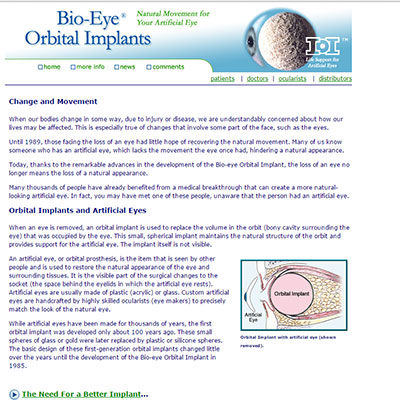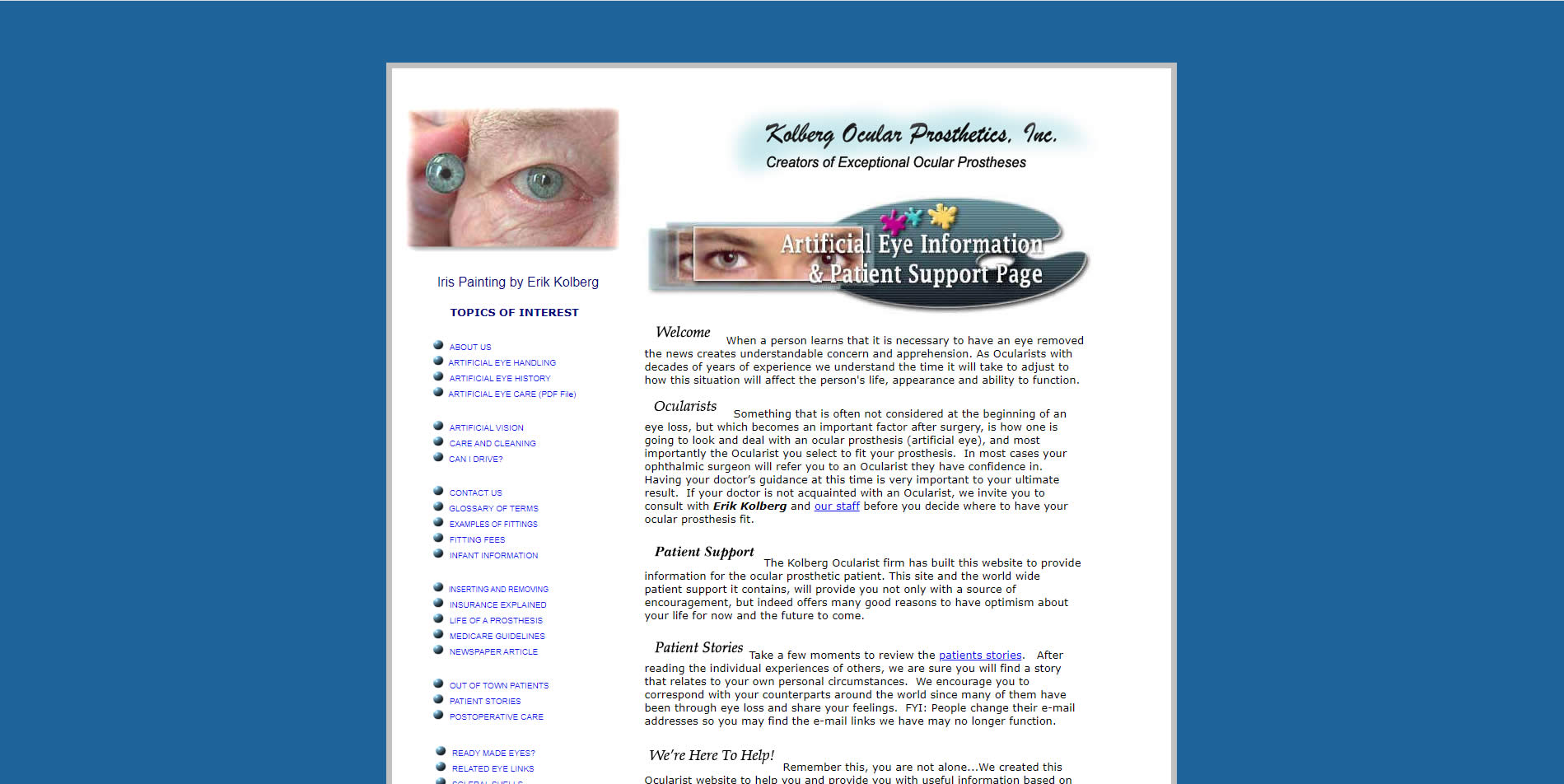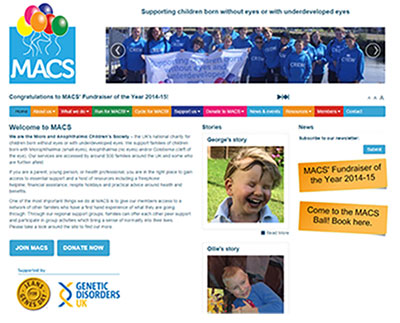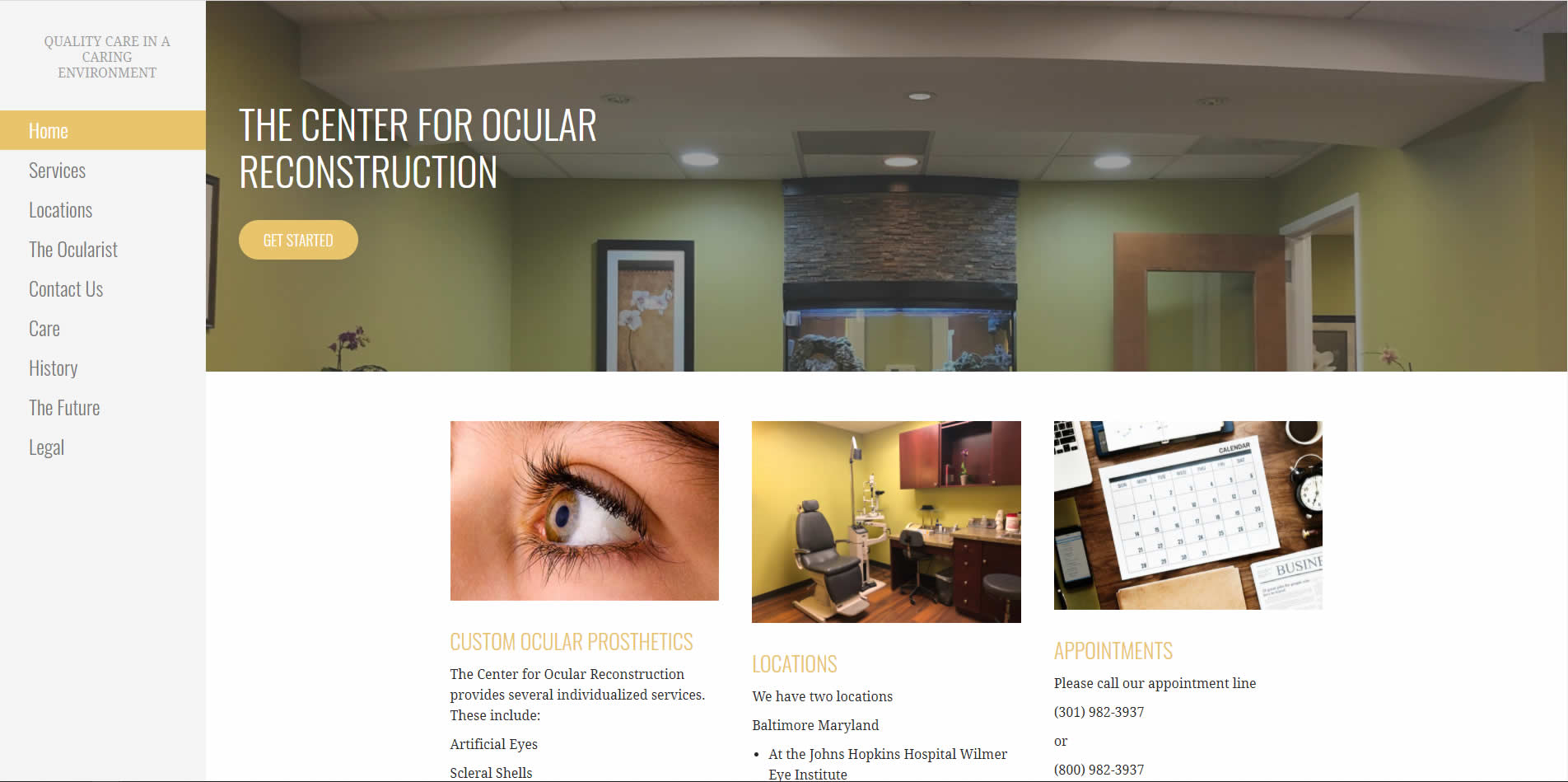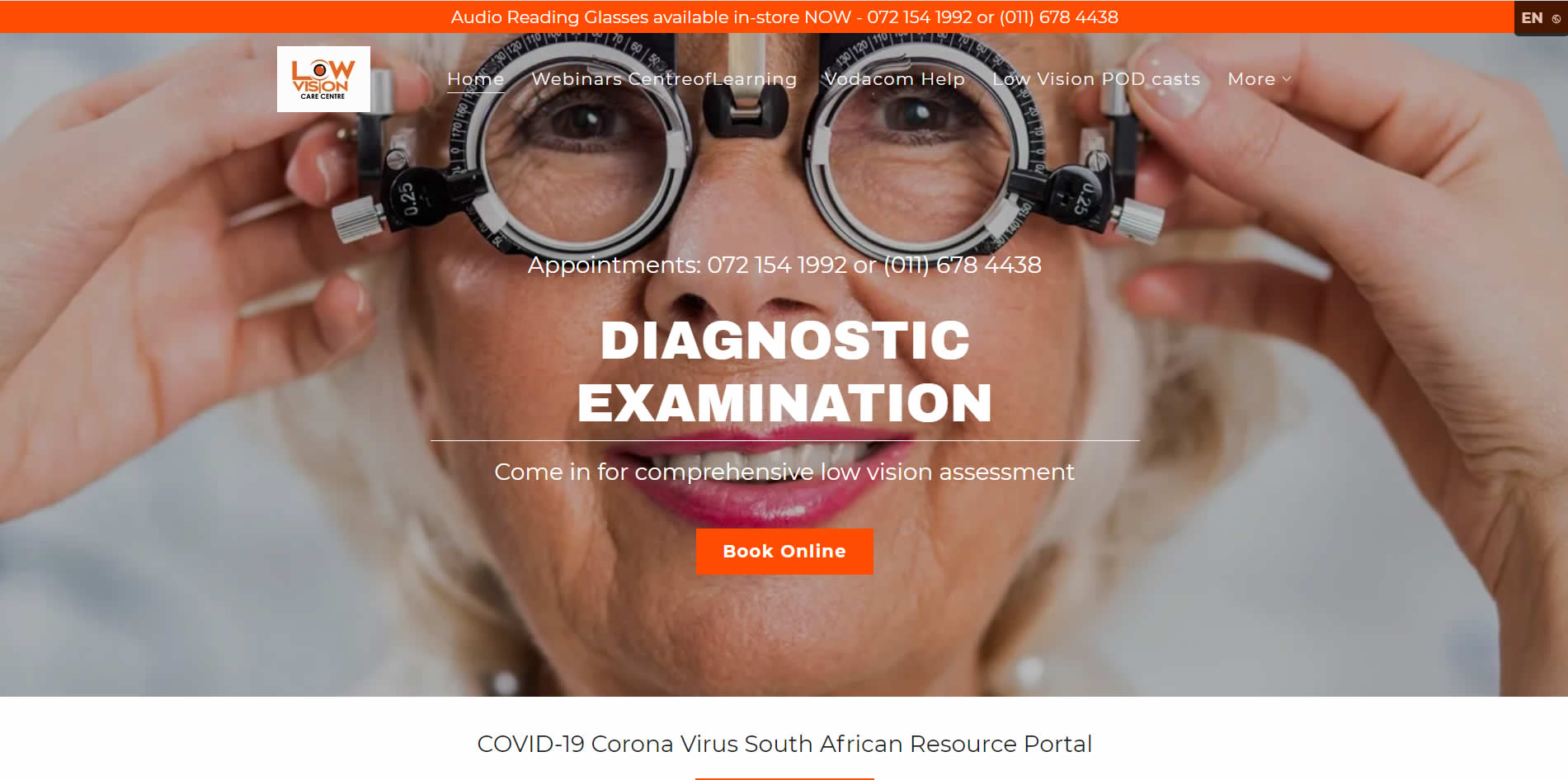Additional Links:
What travellers with disabilities need to know about their rights
Travelling should be an accessible and enjoyable experience for everyone, including those with disabilities. But with barriers to travel which might not always be obvious, it’s normal for some to feel a tad hesitant about taking a holiday – both at home or abroad.

Protecting Vision in the Workplace: An Eye Health Toolkit for Employers, Trade Schools, and Labor Organizations
Every day, about 2,000 U.S. workers suffer ob-related eye injuries that require medical attention. Many of these injuries are preventable with the right safety measures in place. For employers, labor unions, and trade educators, investing in eye protection is not only a legal and ethical responsibility — it’s a practical way to reduce costs, retain workers, and build a safety-first culture.

Family's Guide To Cyberbullying and How It Can Be Prevented
Most classes and activities are done virtually these days. This has eased access to educational materials for students as well as enabled them to collaborate conveniently on school projects with their classmates.
On the flip side, this has also made them more vulnerable to cyberbullying. Today, technology offers bullies a whole new platform for their mean acts. While using the internet, kids are likely to wander off from safe sites to websites that expose them to online bullying, such as social media sites, forums, and online gaming platforms.

Educational Resources For Individuals Working With Blind & Visually Impaired Children
In the realm of early childhood development, ensuring every child’s access to resources that facilitate their growth, learning, and exploration is paramount. For children who are blind or visually impaired, this mission takes on a special significance as they navigate a world primarily designed for sighted individuals.
Whether you are a dedicated parent, a passionate educator, a concerned healthcare professional, or an advocate for inclusive education, this comprehensive guide aims to illuminate the pathways that lead to a brighter future for these remarkable young individuals. Join us as we uncover a multitude of resources, techniques, and organizations that stand ready to empower blind children and ensure they thrive in their early childhood experiences.

The Relationship Between Outdoor Play And Early Childhood Development
Many parents seem to prioritize indoor activities over outdoor play for their kids, often due to convenience and a desire for a safer environment. The ease of turning on an animated show or finding a video on YouTube means that visiting a nearby playground may be overlooked. Additionally, concerns about public safety often lead parents to focus on indoor games and digital content for their children's entertainment. The convenience of propping an animated show or a YouTube video prompts many parents to skip the local playground. Public safety also factors in on many parents’ choice to center their children’s entertainment on home games and digital content.

Vision Center - Eye and Vision Facts
Despite the importance of eyesight, many still have a lot to learn about this essential bodily function. To uncover curious images and knowledge — and perhaps learn something new about your peepers — continue reading for eye and vision facts guaranteed to educate and entertain.

Caring for the Eyes of Children with Developmental and Intellectual Disabilities
Children with intellectual and developmental disabilities (IDDs) can be at a higher risk for a wide range of visual problems, affecting their ability to interact with their environment. These issues can be broad or highly specific, ranging from general vision problems like blurred or double vision to more specialized difficulties like color blindness or structural eye anomalies.

EzriCare and Delsam Pharma Artificial Tears
EzriCare Artificial Tears is a brand of eye lubricant used to relieve or protect against dry, irritated eyes. In February 2023, Global Pharma Healthcare recalled EzriCare and Delsam Pharma Artificial Tears because of potential bacterial contamination that could cause eye infections and vision loss.

How Does Anorexia Affect Eyesight?
The eyes, like any other organ, need proper nutrients to function. People living with anorexia nervosa (AN) typically don’t consume enough food to fully nourish their bodies. This malnutrition leads to physical changes and complications, including to the eyes and vision.

100+ Home Modifications for Seniors and People With Disabilities: The Complete Guide
A significant number of American people are living in trouble with the problem of disability. The infrastructure of their house is not such that it can provide enough convenience for a disabled person to move and work. If we look at the report of the U.S. Census Bureau, we see that more than 40 million people in the U.S. population are living with a disability.
However, there are now a number of resources and systems available that enable disabled individuals to overcome the problem of accommodation. Their house can be redesigned with modern technology, which ensures complete safety, advantages, and enjoyment for a disabled person.

Cataracts and Genetics
A cataract is a cloudy formation that appears inside the eye lens.
It can range from translucent to opaque, depending on its severity.
People often associate cataracts with old age. In reality, it can affect anyone.
The classifications of cataracts based on the age of onset are:
- Congenital cataracts
- Pediatric cataract
- Pre-senile cataract
- Age-related cataract
Molecular genetics identifies genes linked to inherited cataracts. Research extends to age-related cataracts, which also have genetic causes...

Guide to Children’s Eye Health
Children’s eyes and vision develop gradually and should be screened over the course of their lives. As your child ages, you may notice warning signs of common conditions for their age group. These conditions must be diagnosed and treated to allow your child’s vision to develop normally.

The Ultimate Guide to Finding and Renting Housing With Disabilities
Everyone is entitled to a safe, accessible, and comfortable home. If you or a loved one live with a disability, finding and renting the right housing can feel like an uphill battle. But there is no reason to go it alone. Government agencies and national organizations are available to help with the process. Federal and state laws mandate that disabled renters should never face discrimination or hardship when finding their ideal rental home. Understanding your legal rights is the first step toward simplifying the process of finding a rental.

Internet Navigation for Individuals with Low Vision or Blindness
Visual impairment can make navigating the internet a challenge, but it is far from impossible.
Many computers come with built-in tools you can use to interact with the web. Adding elements to your computer can help you do even more. And web designers use techniques to make some sites more accessible for people with vision loss.
To change the size of this text in a Windows PC web browser, hold down the ‘Control’ keyboard button and press ‘+’ or ‘-‘ to zoom in and out.
On a Mac, hold the ‘Control’ button down and use the ‘Scroll’ function on your mouse. With an Apple Mouse, this is done by dragging a finger up or down the area where the tips of your fingers rest. With a non-Apple mouse, it is done through a scroll wheel.

How to Set Up a Productive Home Office if You Are Blind or Have Low Vision (1)
The world is not always as welcoming as it should be to those who are blind or have low vision, but every room in your home should be a safe and comfortable environment. If you’re a remote employee, this same rule applies to your home office. Many of the strategies you’ve likely already used in other areas of your home can be applied to your office space, but there are a few additional strategies that will help your comfort level and even your efficiency when you’re on the clock. Our guide offers the details on what you can do to create a productive home office if you are blind or partially-sighted.

Vision Center U.S.
Over 3 million people (40+) in the U.S. are legally blind or have low vision, which means they have a best-corrected visual acuity below 6/12 (greater than 20/40). The primary causes of poor vision and blindness in America are connected to certain eye conditions and diseases. These include cataracts, glaucoma, diabetic retinopathy, and age-related macular degeneration, among other eye disorders.
Many people also have a refractive error, such as astigmatism, nearsightedness (myopia), farsightedness (hyperopia), presbyopia, or a combination. Eyeglasses, contact lenses, or LASIK eye surgery are necessary to correct mild to severe refractive errors.

How to Make Your Garden Safe and Fun for Disabled Children
Your garden is a wonderful place for disabled children to explore and play without being at risk outside the house. However, if your garden isn’t designed and set-up correctly, they may not be able to enjoy it as much as they could. Not only that, creating a disability-friendly garden can be a fantastic project to do with your child.
We understand that not everyone knows how they can transform their garden into a place for their disabled child, so that’s why we’ve created this article, full of hints, tips and guides to help you and your child create a place for them to enjoy.

Career Guide for People With Disabilities
As a person with a disability, you may hesitate to look for work. You can be unsure whether or not to make a disability known when applying for employment.
In today's job market, however, that shouldn't be an issue. A disability doesn't prevent you from having the job of your dreams.
The job market accommodates people with a wide range of qualifications, passions, talents, and abilities.

Home, Safe Home: Getting Started with Accessible Home Security
Being a senior citizen with vision loss often means struggling to achieve that delicate balance between independence and personal safety.
Many newly blind seniors experience a growing sense of vulnerability, especially at home, and even more so if you live alone. Children, neighbors, and friends are usually willing to "check in" on you, but at some point all the checking up can begin to feel intrusive.
You know in your heart they are well meaning, but these are things you should be able to handle yourself.

How to Set Up a Productive Home Office if You Are Blind or Have Low Vision
The world is not always as welcoming as it should be to those who are blind or have low vision, but every room in your home should be a safe and comfortable environment.
If you’re a remote employee, this same rule applies to your home office.
Many of the strategies you've likely already used in other areas of your home can be applied to your office space, but there are a few additional strategies that will help your comfort level and even your efficiency when you’re on the clock.
Read more to see how to improve your home / office space.

Medication management for people with disabilities
Even when people want to do everything they can for their health, there can be barriers that get in the way. One in every four U.S. adults has a disability, according to the Centers for Disease Control (CDC). Plus, many people with disabilities are also managing chronic conditions or other illnesses. If you have a disability and you’re taking medication, you’re certainly not alone. That’s why we created this guide.

CHLA - Prepare a Visually Impaired Child for Day Care
Visual impairment does not affect what a child is able to learn, but does affect how a child learns. Everyday communication becomes more challenging, for example, without eye contact, it will be hard to know if they are paying attention. Your child may miss visual cues like smiling and frowning as well as someone pointing or waving.

Angies List - Making Sure Your Disabled Guests Feel Safe and Welcome in Your Home
For people who are physically able and neurotypical, the bar is relatively low. As long as a place is clean, structurally sound, and secure, it’s safe. Food, friends, and fun make a loved one’s home a welcoming environment.
But for people with disabilities, “safe” and “welcoming” are relative terms, and the environment requires closer scrutiny. For the 61 million Americans who are differently abled, safety is knowing that you can enter a space without the risk of hurting yourself, and feeling welcome is being hosted by a friend who is aware and supportive of your unique needs.

How to Design a Sensory Garden for the Blind or Visually Impaired
With a little care and thought, you can design a sensory garden (especially for the blind or visually impaired). Even if we are born with sight, accident or illness can rob us of our ability to see at any time in our lives.

MSU - Legal Requirements of Hiring a Person with a Visual Impairment
The Americans with Disabilities Act of 1990 (ADA) makes it unlawful to discriminate in employment against a qualified individual with a disability such as blindness or visual impairment. The ADA also outlaws discrimination against individuals with visual disabilities in State and local government services, public accommodations, transportation and telecommunications. The ADA prohibits job discrimination. This part of the law is enforced by the U.S. Equal Employment Opportunity Commission and State and local civil rights enforcement agencies that work with the Commission.

Perkins - Workplace Accommodations
Through the Americans with Disabilities Act, employers are required to provide job applicants and employees with disabilities “reasonable accommodations” that allow them to enjoy equal employment opportunities. Accommodations will vary depending on the needs of the individual, but the ones listed below are examples of adjustments or modifications that are often requested by employees who are blind or visually impaired.

Vision Aware - Setting Up the Home Office After Vision Loss
To some degree, the basics of a functioning home office couldn't be simpler. If you've got a desk, a chair, a personal computer you're comfortable with, and an empty corner to put them all, well then, you've got yourself a home office. If you want to get the most out of your work space, however, you're going to have to put some thought into each of these elements.

Microtia
Through close collaboration with leading surgeons worldwide, Stryker Craniomaxillofacial has gained a well-earned reputation as a market leader for its innovative developments in Craniomaxillofacial and Neurosurgery. In order to maintain this spirit of innovation and leadership, we continuously focus our research and development of biomaterials, fixation systems and radio frequency.

Bio-Eye Orbital Implants
When our bodies change in some way, due to injury or disease, we are understandably concerned about how our lives may be affected. This is especially true of changes that involve some part of the face, such as the eyes.

Artificial Eye
When a person learns that it is necessary to have an eye removed the news creates understandable concern and apprehension.
As Ocularists with 45 years of experience we understand the time it will take to adjust to how this situation will affect the person's life, appearance and ability to function.

Micro and Anophthalmic Childrens Society
We are the Micro and Anophthalmic Children’s Society – the UK’s national charity for children born without eyes or with underdeveloped eyes.
We support families of children born with Microphthalmia (small eyes), Anophthalmia (no eyes) and/or Coloboma (cleft of the eye).
Our services are accessed by around 500 families around the UK and some who are further afield.

Center For Ocular Reconstruction
Throughout recorded history, it is evident that man has found a need to attempt to restore or replace the eyes and facial parts of those who were either unfortunate enough to have congenital deformities, or to have suffered from trauma or the disease processes of later life.
Most of the evidence of the evolution of ocular and facial prosthetics until the mid 16th century is anecdotal.

Low Vision Optometrists
Of all disabilities, visual disability or low vision is perhaps the most misunderstood.
People tend to think of it as "all or nothing" – either you are fully sighted, or totally blind with no in between.
In fact, just like other forms of disability, low vision or partial loss of vision is very much the rule rather than the exception.
Disclaimer
Some of the above external websites mention statistics, laws and government grants that are specific to other countries that are not available in South Africa. Eyes Alive only provides information that may be useful and takes no responsibility for how the information is used.
Contact Us
Operating Hours
Monday - Friday: 9:30 am - 5:00 pm
1 Saturday a month: By appointment only
Sunday: Closed
Let us call you
Provide your details to us and we will be in touch with you.



